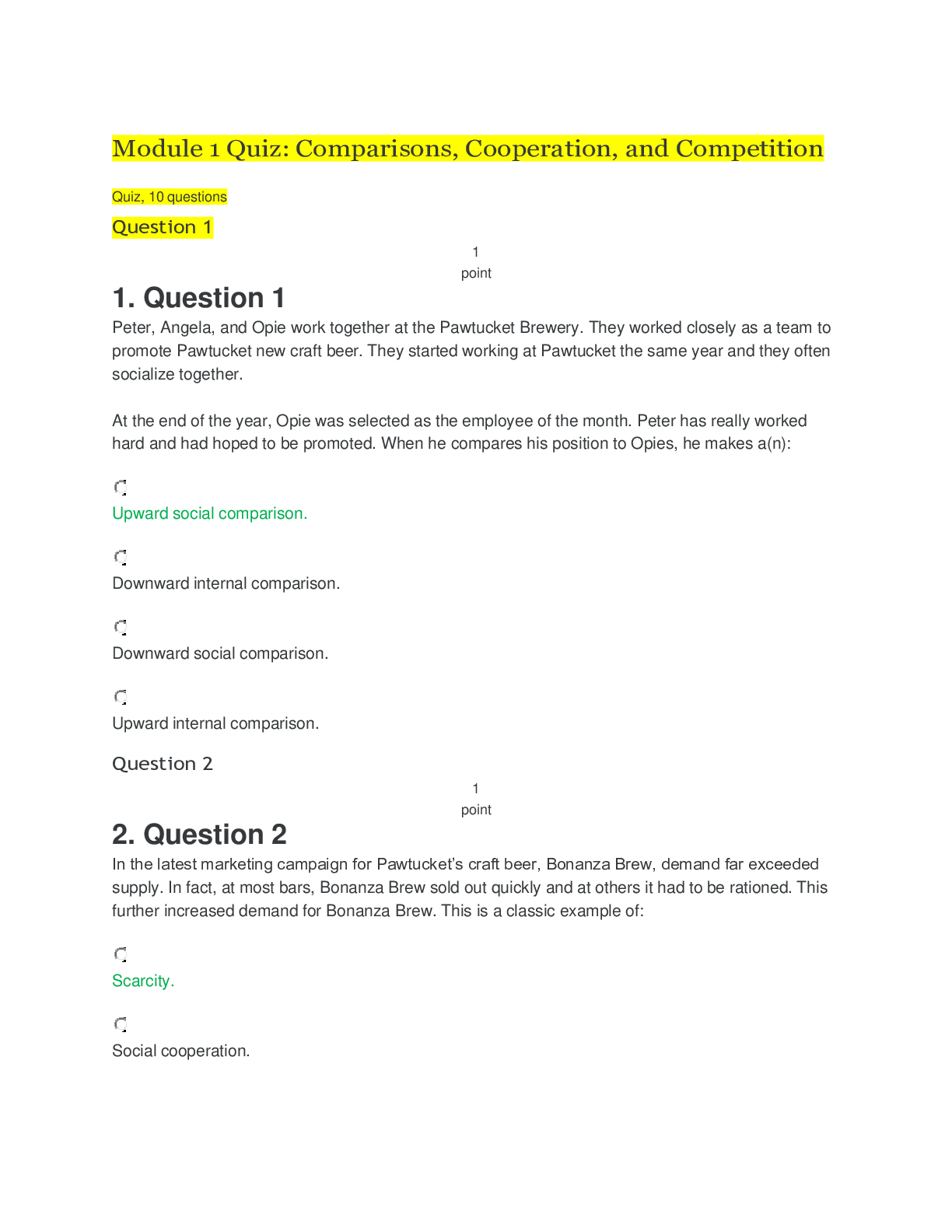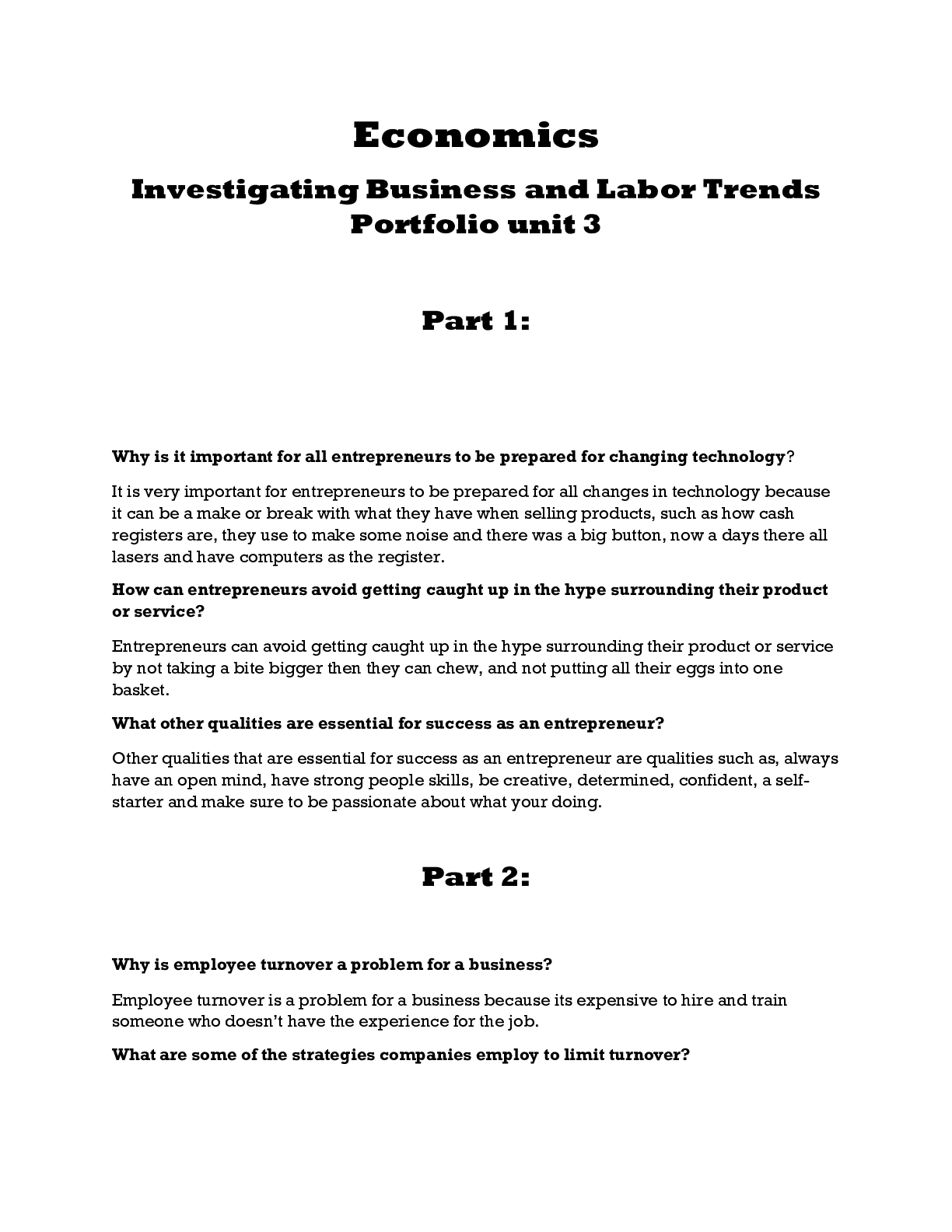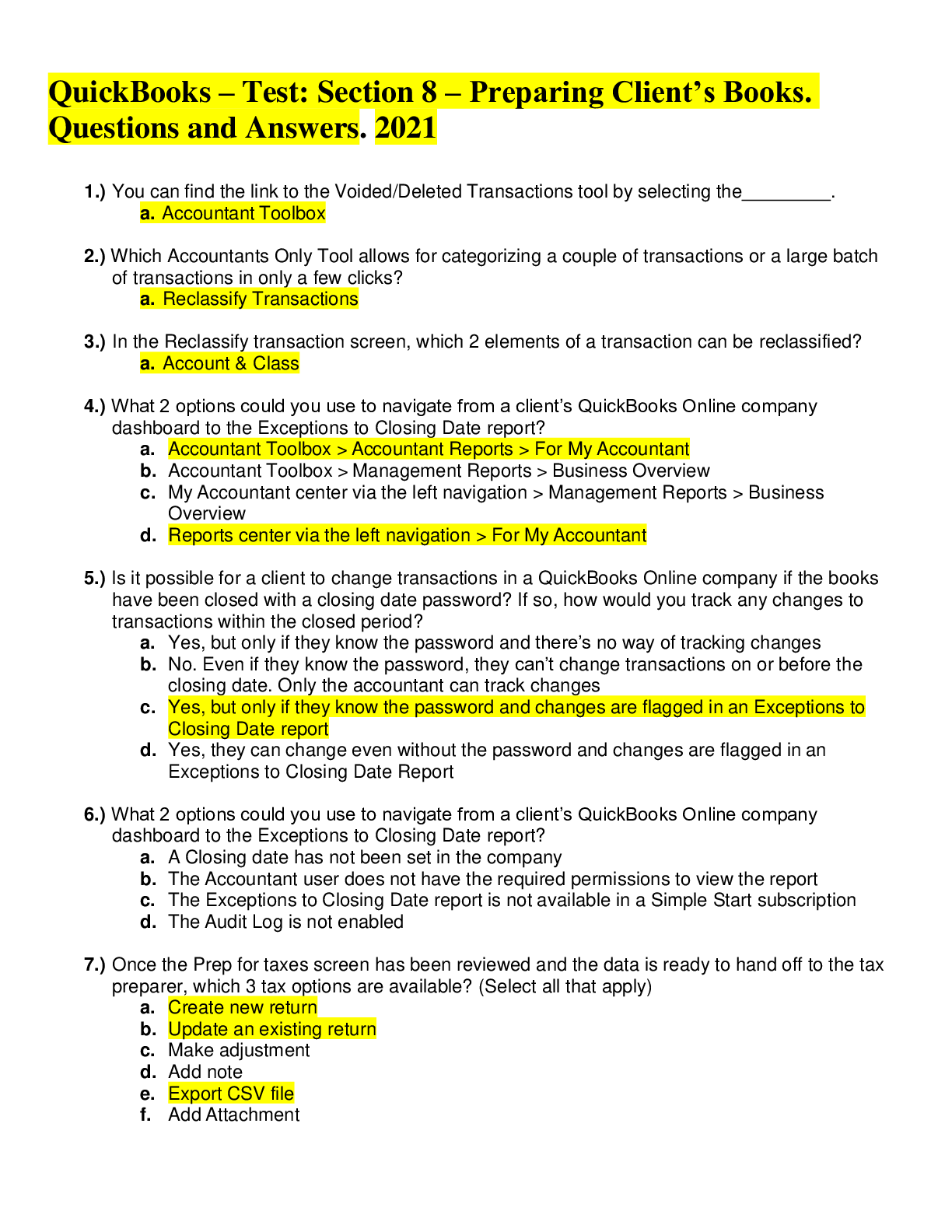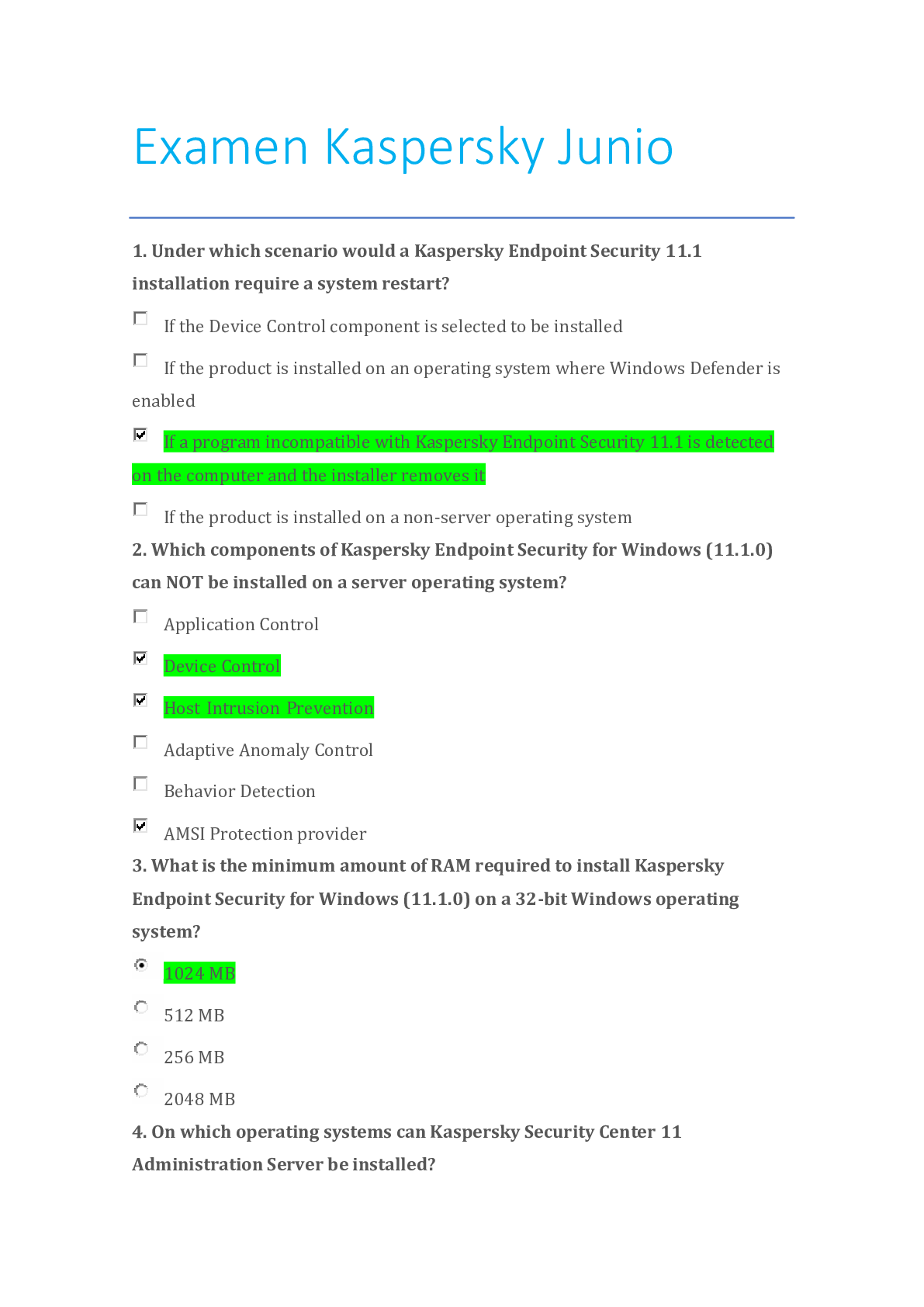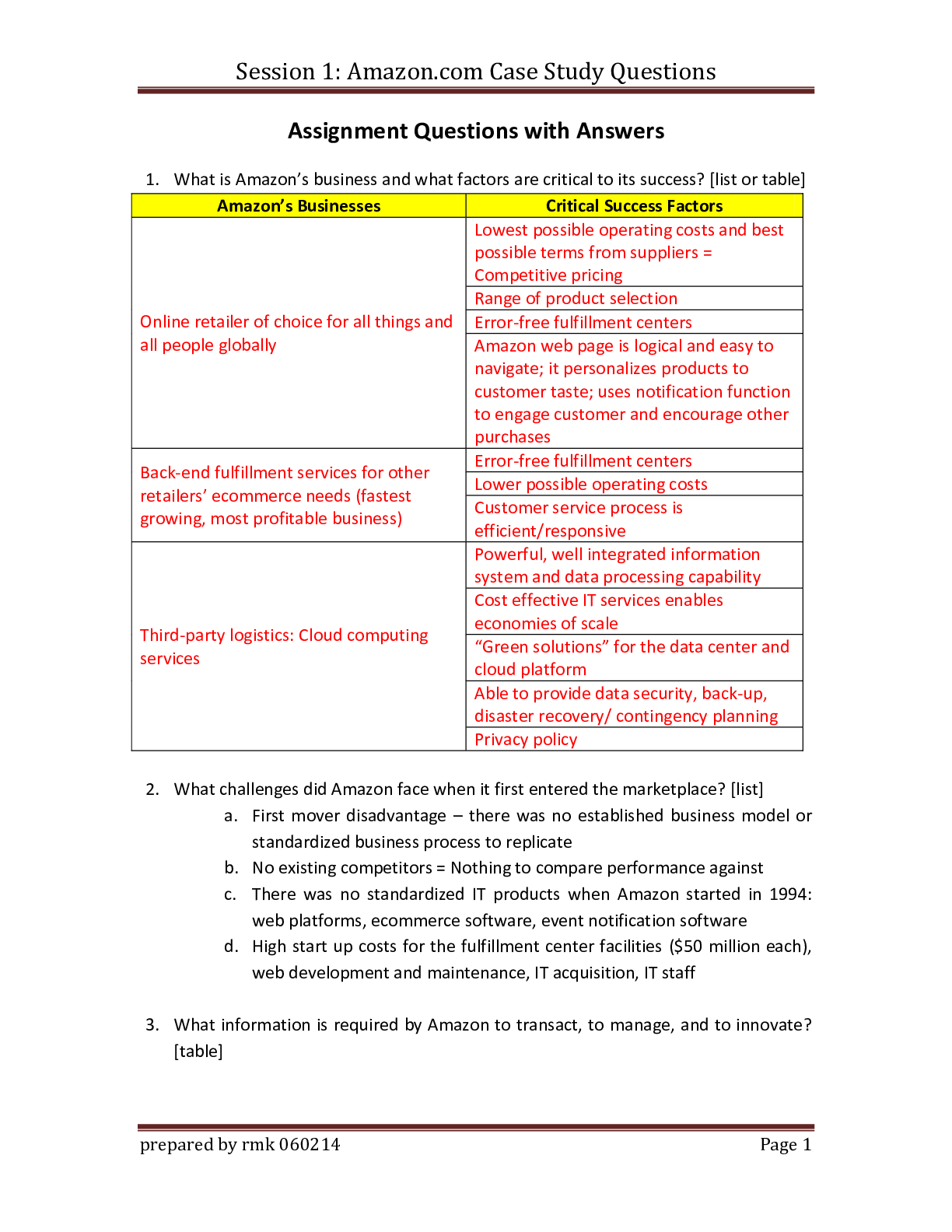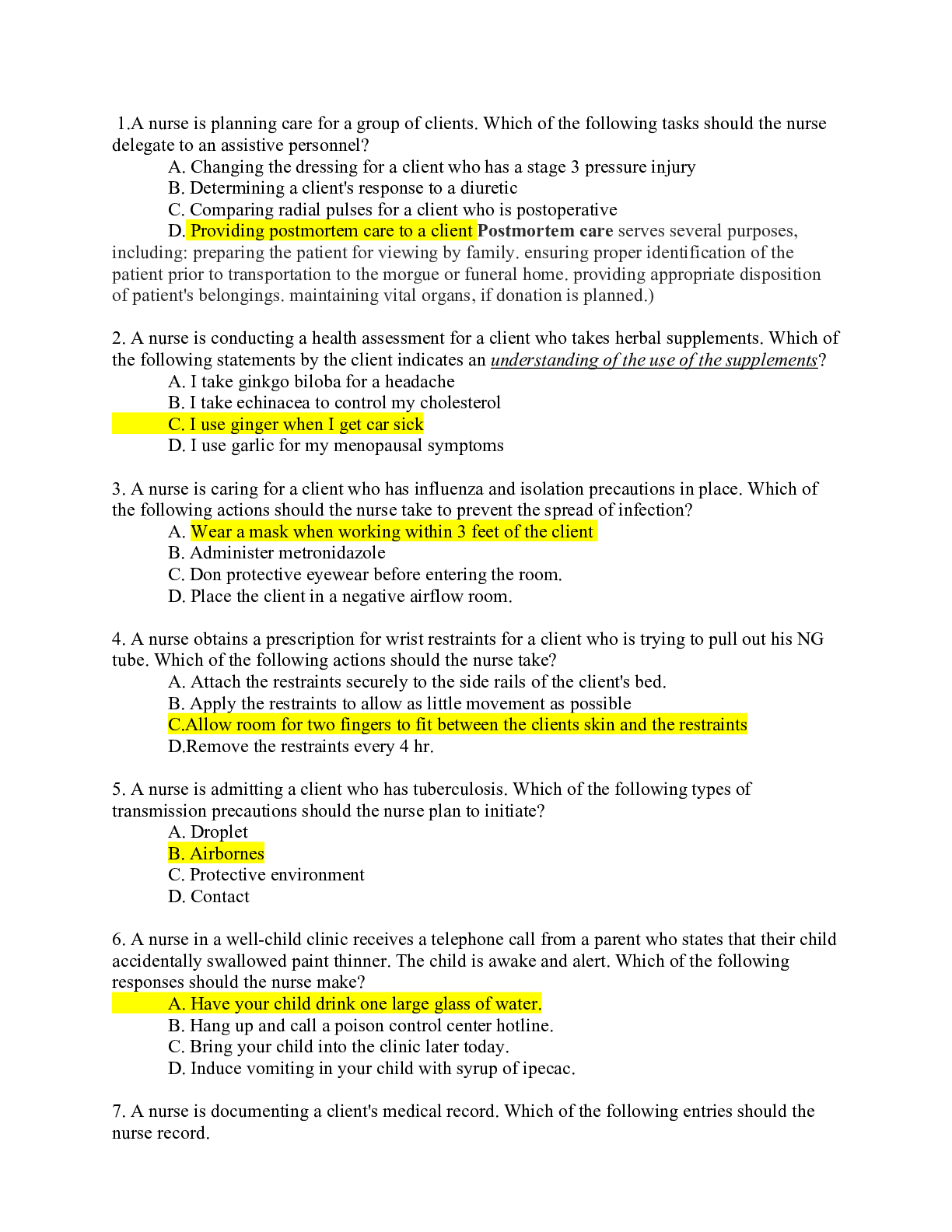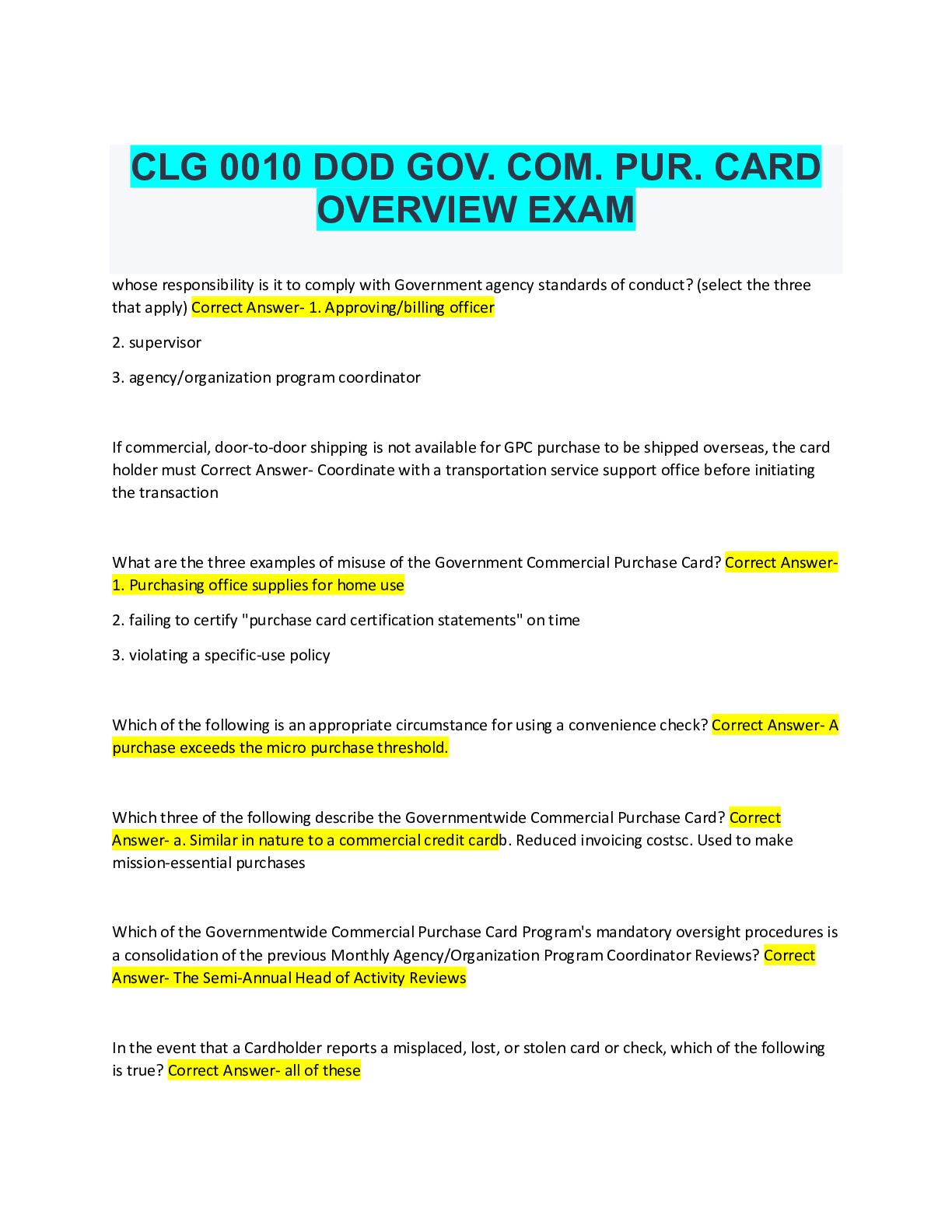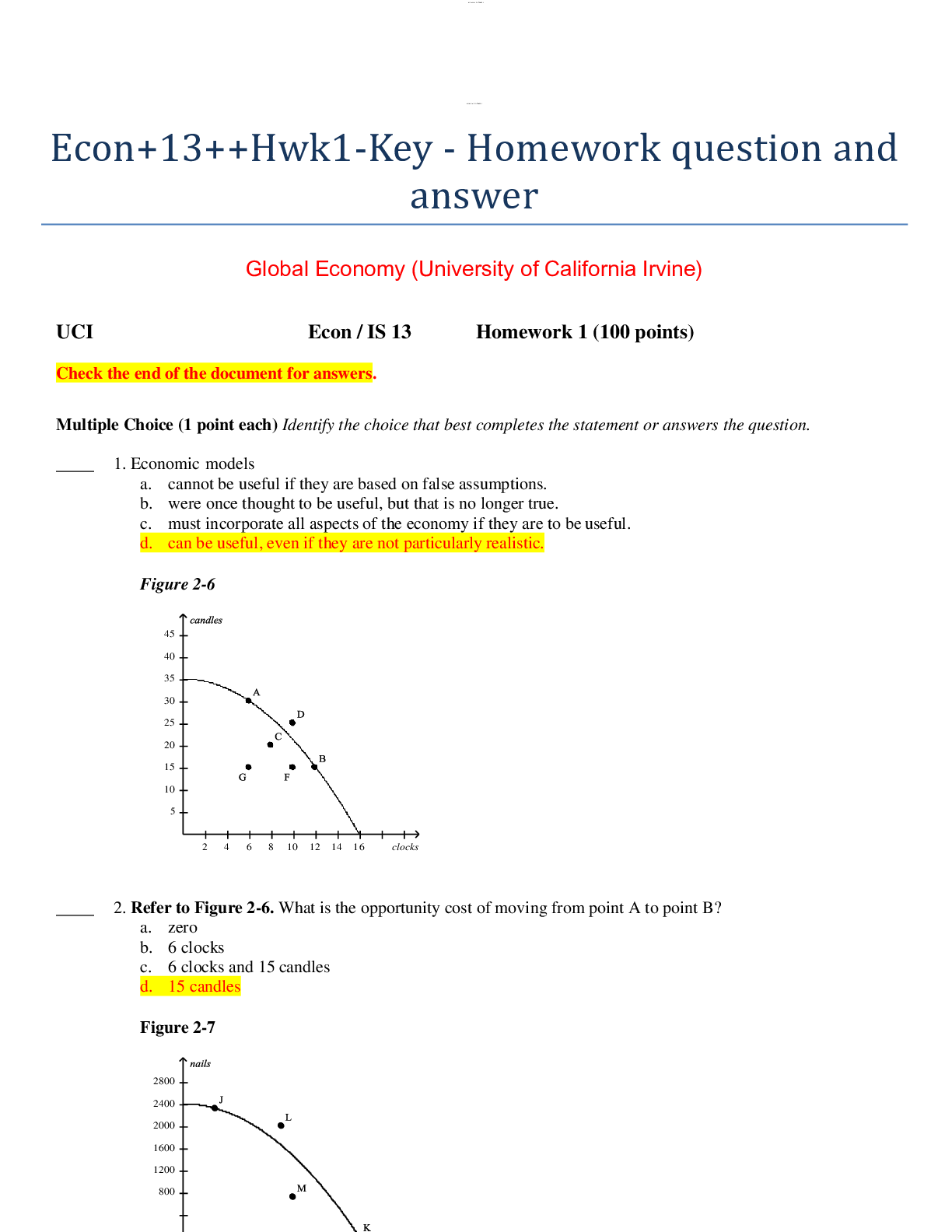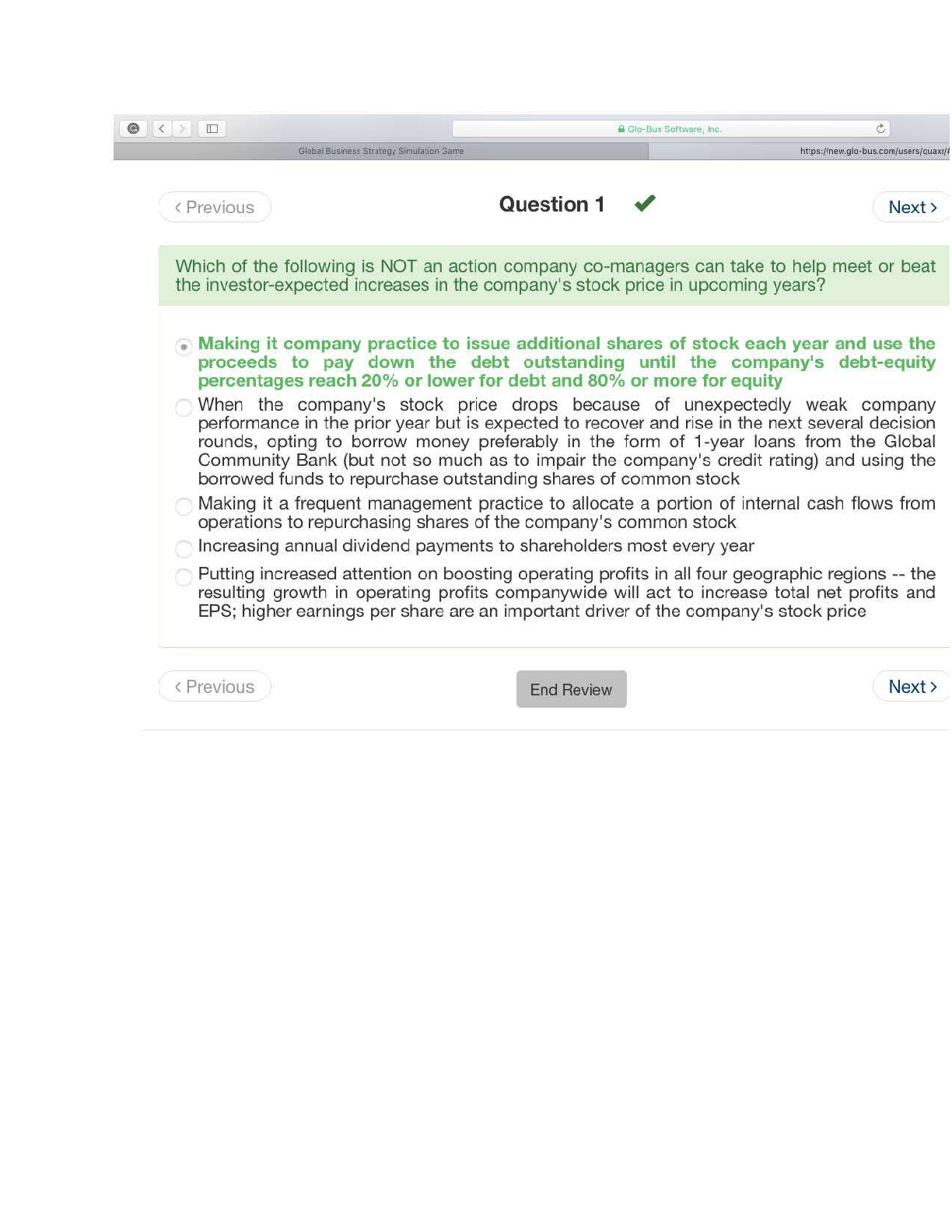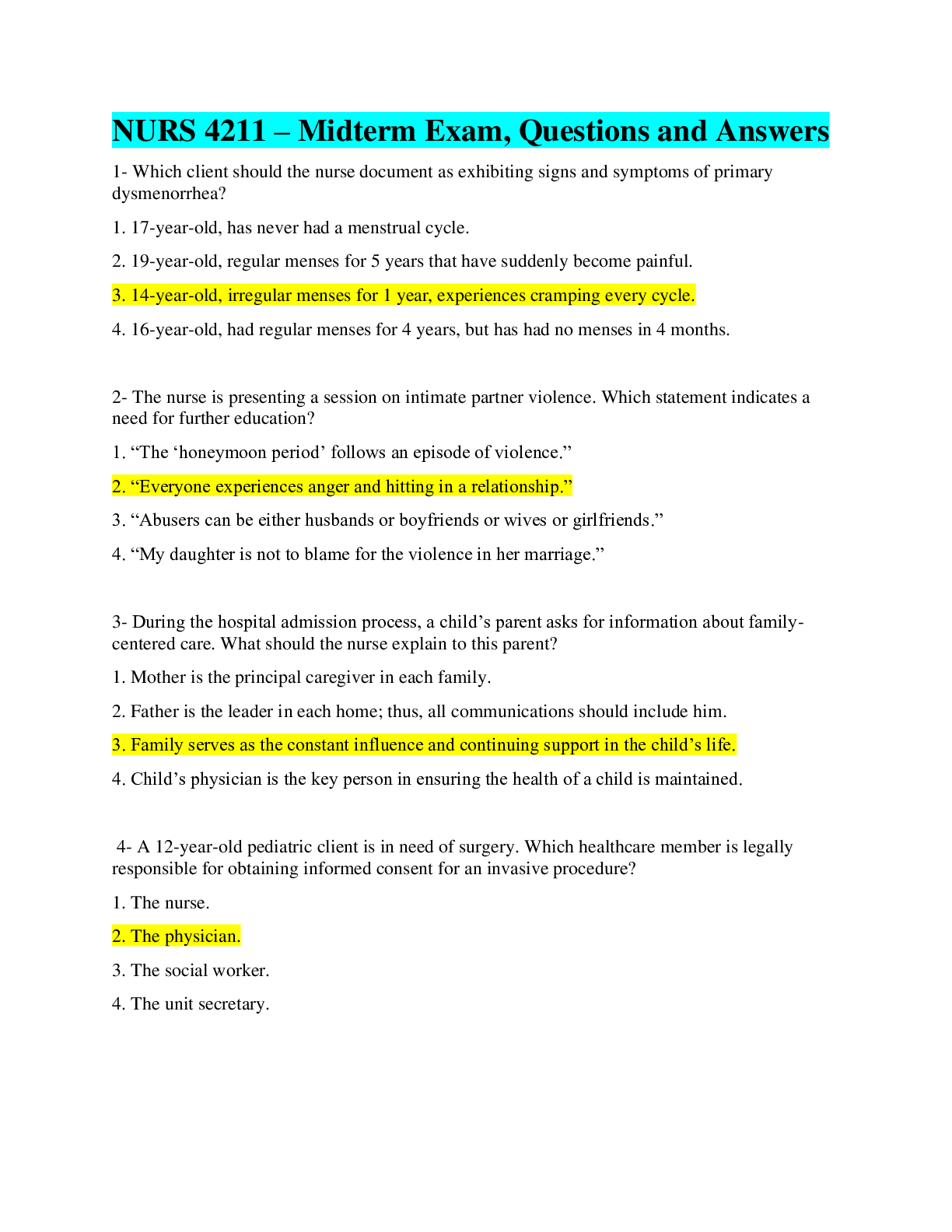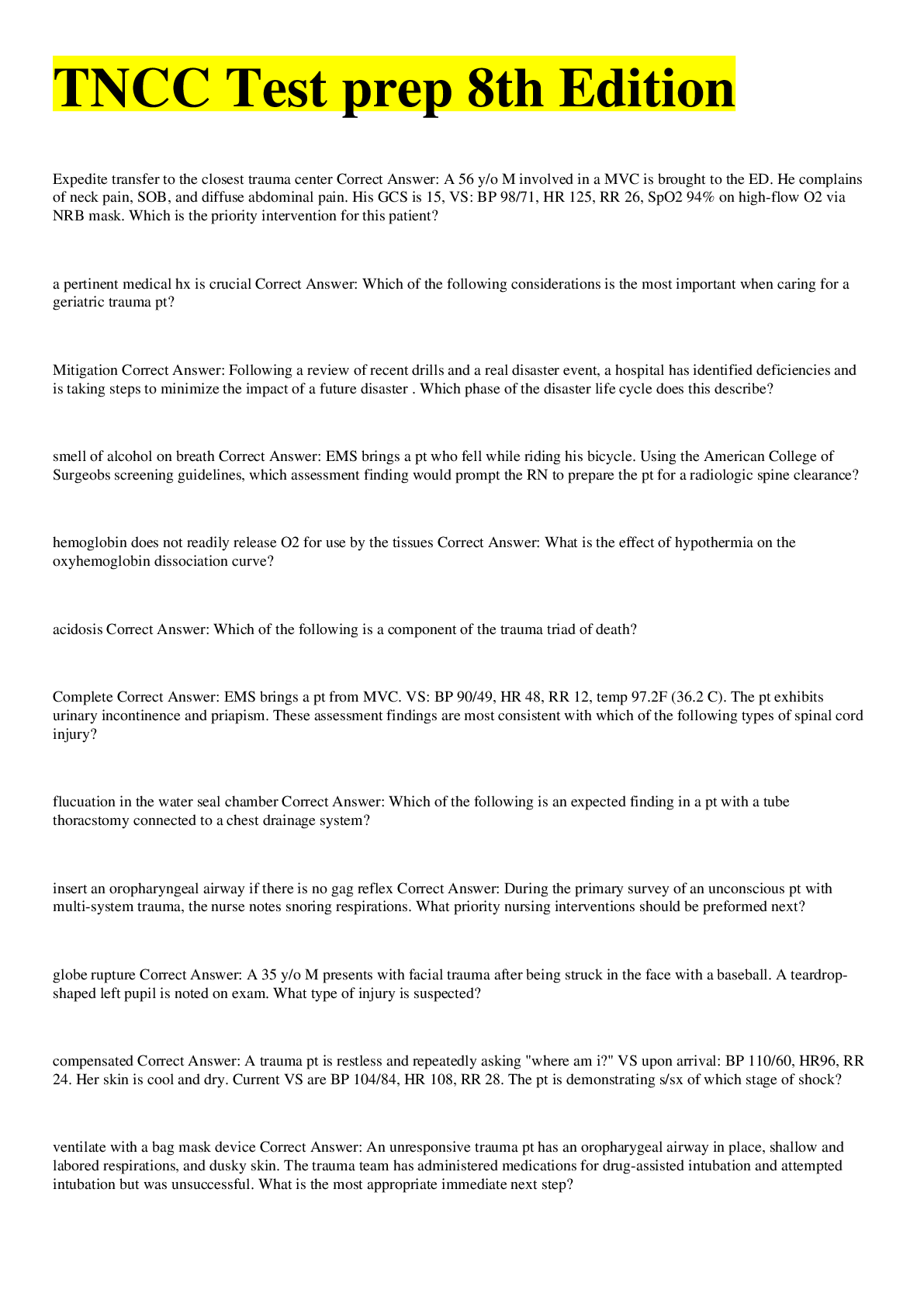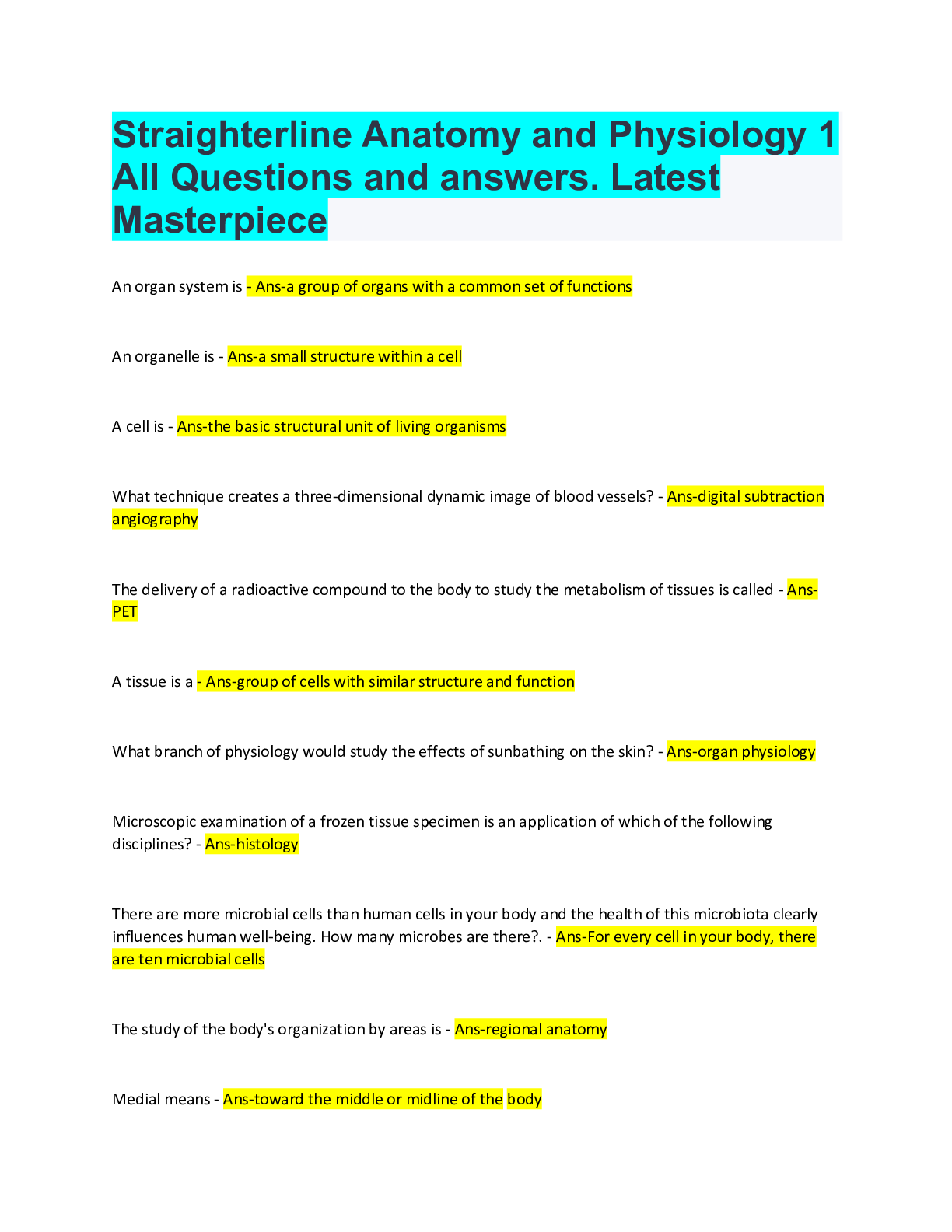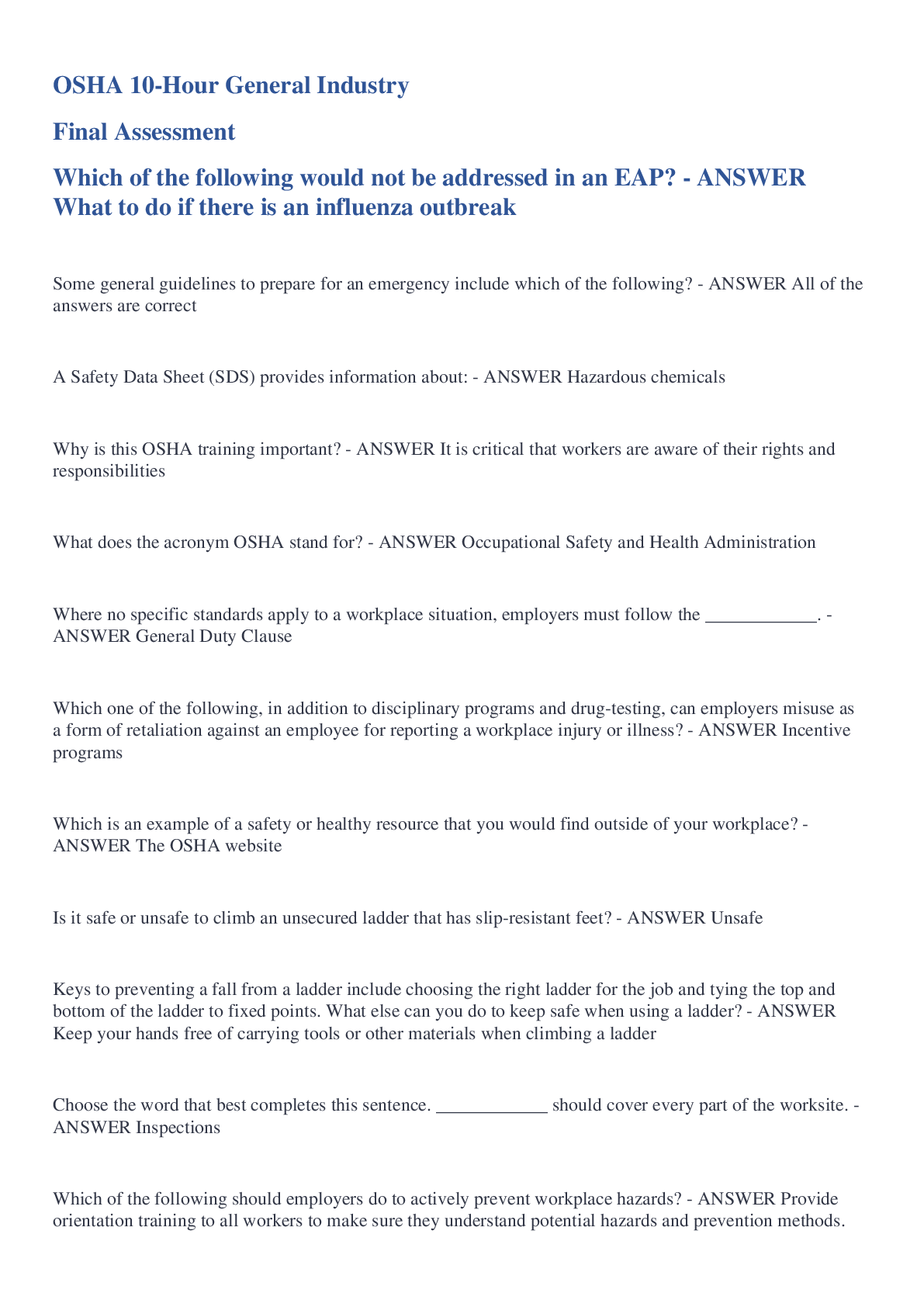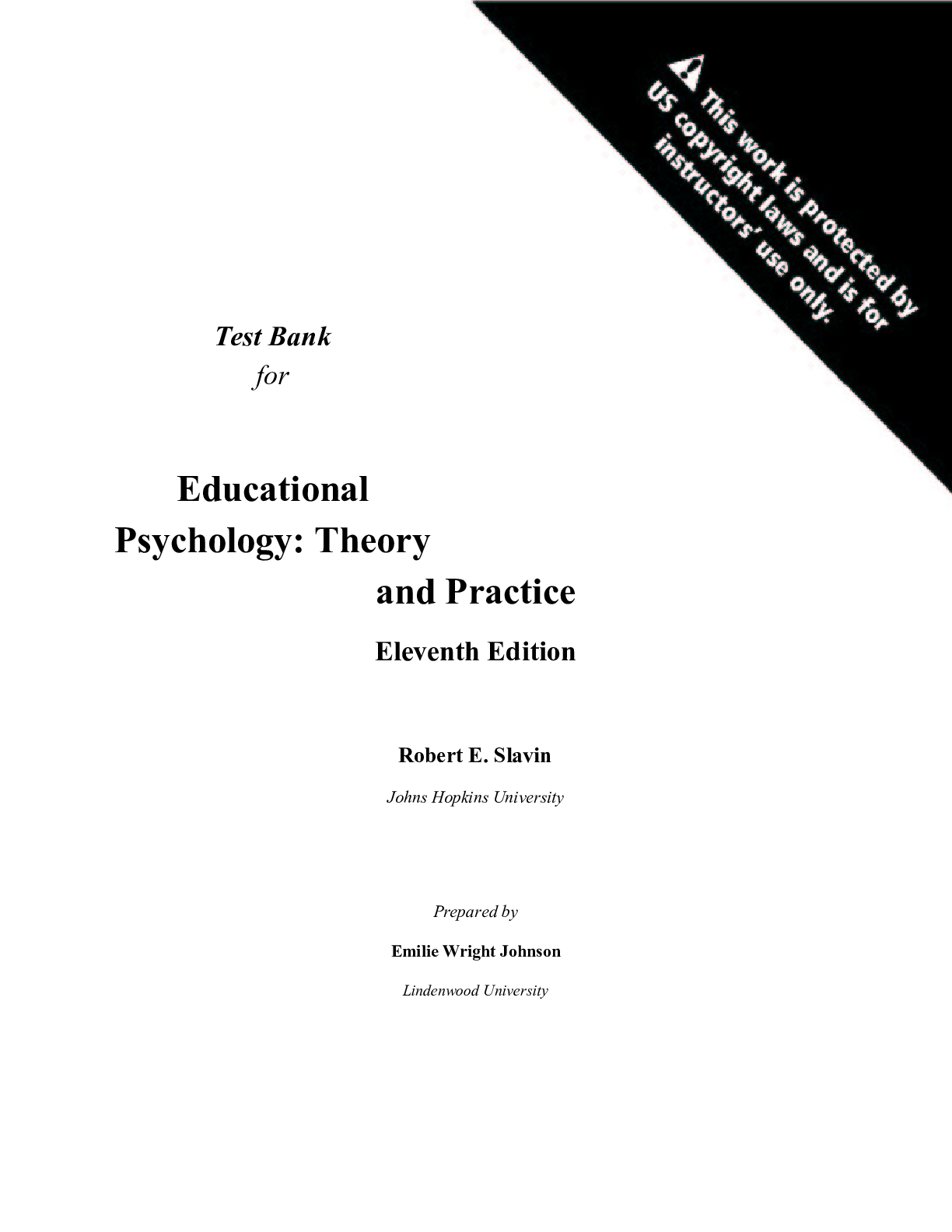*NURSING > QUESTIONS & ANSWERS > Evidence Based Practice Exam #1. Questions and answers. 2022/2023/ (All)
Evidence Based Practice Exam #1. Questions and answers. 2022/2023/
Document Content and Description Below
Evidence Based Practice Exam #1. Questions and answers. 2022/2023/ What Is Evidence-Based Practice? - ✔✔The collection, interpretation, and integration of valid research evidence, combined ... with clinical expertise and an understanding of patient and family values and preferences to inform clinical decision making. Clinical Decision Making - ✔✔Nurses are using best available evidence, combined with their clinical judgment and patient preferences to influence the nature and direction of health care delivery, and document outcomes related to the quality and cost effectiveness of patient care. What is Quality Improvement? - ✔✔The systematic use of data to monitor the outcomes of care processes as well as the use of improvement methods to design and test changes in practice, the aim of which is to continuously improve the quality and safety of health care systems. Quantitative research - ✔✔Uses research ques/hypo to describe phenomena, test relationships, assess differences, & seek to explain cause-&-effect relationships between variables, & test for effectiveness of interventions. Use numeric data to describe and analyze the results summarized and analyzed using statistics. Data collected from large # of subjects. Uses questionnaires, equipment Used for testing theories. Uses objective approach Efficiency, but may miss contextual details Qualitative research - ✔✔Aims to understand meaning of a human experience: grief, hope, loss. Uses words rather than numeric data to describe experience. Data collected from small # of subjects allowing for in-depth study of a phenomenon. Generally conducted in natural settings. Researcher as instrument Data assist in generating theories. Uses a subjective approach. Information rich, but time consuming, lack of generalizability. Research - ✔✔qualitative, quantitative, or mixed Systematic Research - ✔✔a summation & assessment of a group of studies that used similar designs based on a focused clinical question Meta-analysis - ✔✔summarizes a number of studies focused on a topic using a specific statistical methodology to synthesize findings in order to draw conclusions. Integrative review - ✔✔a focused review & synthesis of lit without statistical analysis. Can include both qual & quant articles Meta-synthesis - ✔✔Synthesis of a no. of qual studies on a focused topic using specific qualitative methodology Preliminary understanding - ✔✔Familiarize self with the study. Skim abstract and article. Comprehensive understanding - ✔✔Understand research purpose/intent, clarify unfamiliar terms/concepts. Analysis Understanding: - ✔✔Understand parts, critique soundness. Synthesis Understanding - ✔✔Understand whole article & each step of RP Critical reading requires four stages of understanding. What is the last stage? o Analysis o Preliminary (skimming) o Synthesis o Comprehensive - ✔✔Answer: C Rationale: Critical reading requires four stages of understanding: preliminary (skimming), comprehensive, analysis, and synthesis. What is an assessment of a group of research studies that test a similar research question? o Systematic review o Meta-analysis o Integrative review o Meta-synthesis - ✔✔Answer: A Rationale: A systematic review is a summation and assessment of a group of research studies that test a similar research question. A meta-analysis summarizes a number of studies focused on a question/topic using a specific statistical methodology to synthesize the findings in order to draw conclusions about the area of focus. An integrative review is a focused review and synthesis of either research or theoretical literature on a particular area that follows specific steps of literature integration and synthesis without statistical analysis and can include both quantitative and qualitative articles. Both meta-synthesis and meta-summary are the synthesis of a number of qualitative research studies on a focused topic using specific qualitative methodology. What is PICO? - ✔✔PICO is an acronym used for patient-centered problems based on four areas of knowledge and action: o Patient or Problem o Intervention, cause or prognosis o Comparison or Control o Outcome or results A 28-year-old male presents with recurrent furunculosis (skin boils) for past 8 months; these episodes have been treated with drainage and several courses of antibiotics but keep recurring. He asks if recurrences can be prevented. To convert this to an answerable question, use the P I C O method as follows Question: In patients with recurrent furunculosis, do prophylactic antibiotics, compared to no treatment, reduce the recurrence rate?' - ✔✔• P: Patients with recurrent furunculosis • I: prophylactic antibiotics. • C: No treatment • O: Reduction in recurrence of furunculosis Mabel is a 6-week-old baby at her routine follow-up. She was born prematurely at 35 weeks. You want to tell the parents about her chances of developing hearing problems. Question: n infants born prematurely, compared to those born at full term, what is the subsequent lifetime prevalence of sensory deafness?' - ✔✔• P: Infants • I: Premature • C: Full term • O: sensory deafness Research problem - ✔✔Enigmatic, perplexing, or troubling condition. Research question - ✔✔Specific queries researchers want to answer in addressing the research problem. Purpose - ✔✔Researcher's summary of the overall goal. May identify several aims/ objectives. Hypothesis - ✔✔Specific prediction about answers to the research questions Variables - ✔✔Properties researchers study. Something that varies. Properties that differ from each other (age, wt, ht.) Should be relevant, of interest & measurable. Independent variable: IV (X) - ✔✔Has presumed effect on DV Can be manipulated • The presumes cause • Has effect on the DV • Predictor variable • Control variable • Varies or manipulated by the researcher Dependent variable: DV (Y) - ✔✔Often referred to as consequence. Observed & assumed to vary with change. Not manipulated. • The presumed effect/result • Changes in response to IV • Response variable • Outcome variable • Being observed or measured directional research hypothesis - ✔✔A directional research hypothesis predicts the expected direction of the relationship between X and Y. [Show More]
Last updated: 1 year ago
Preview 1 out of 10 pages
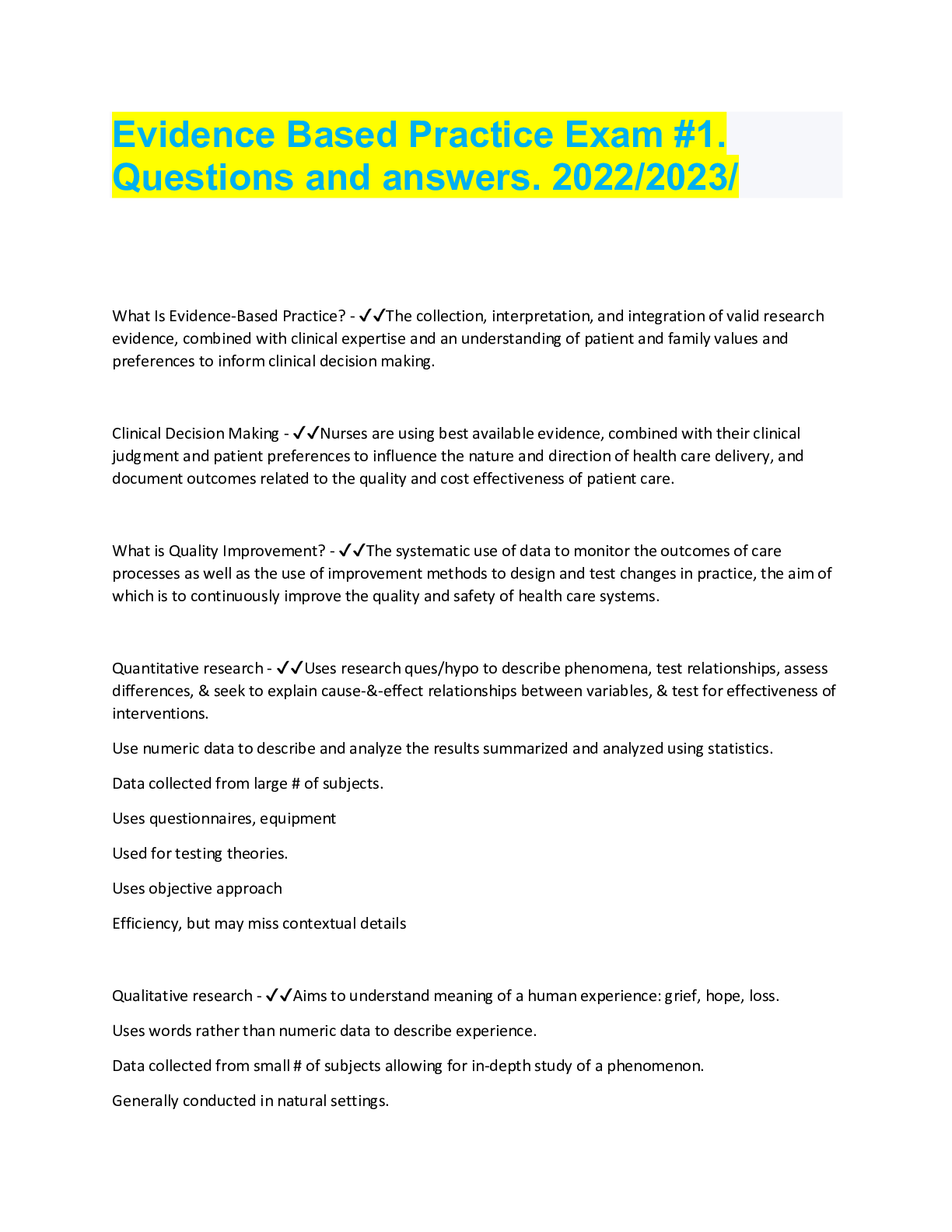
Reviews( 0 )
Document information
Connected school, study & course
About the document
Uploaded On
Oct 10, 2022
Number of pages
10
Written in
Additional information
This document has been written for:
Uploaded
Oct 10, 2022
Downloads
0
Views
114
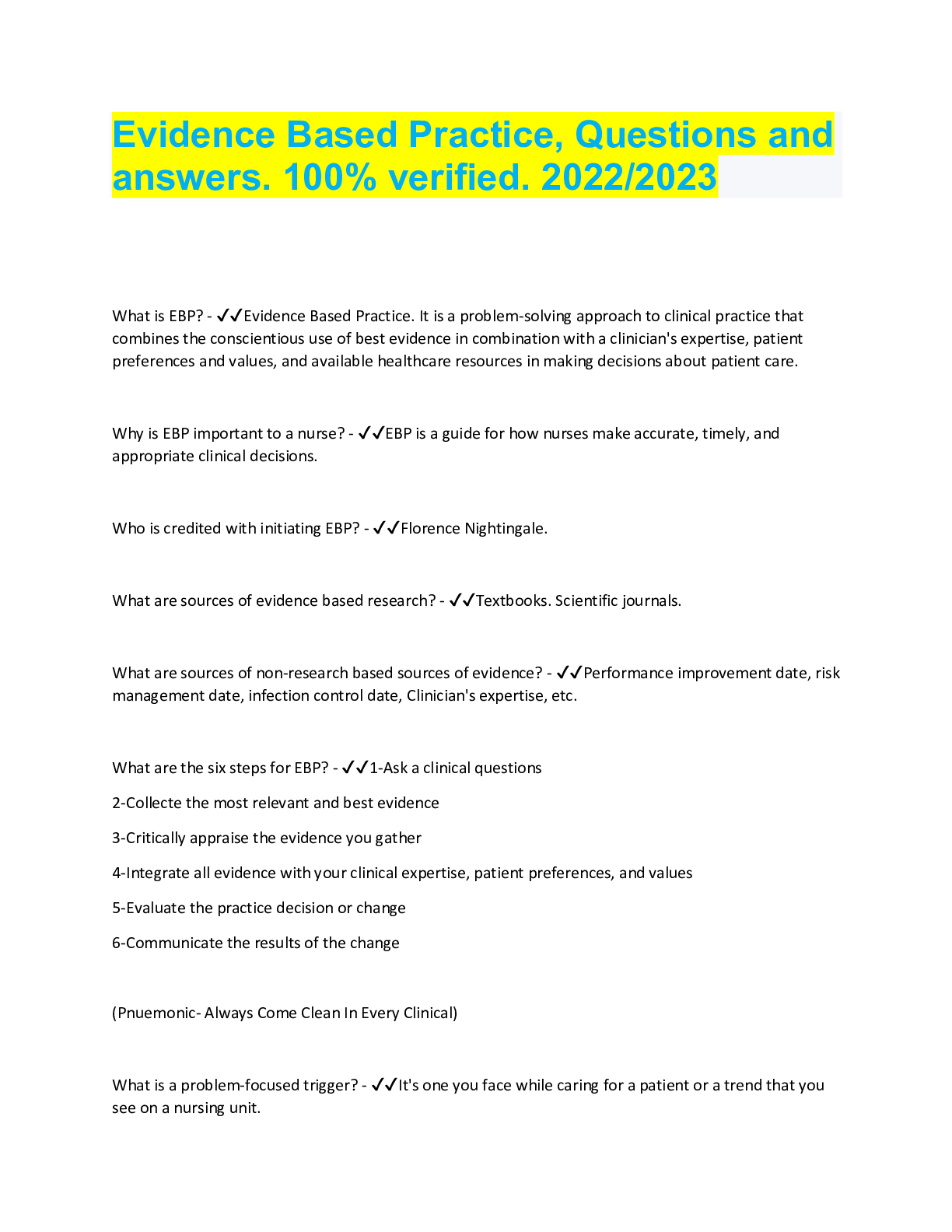

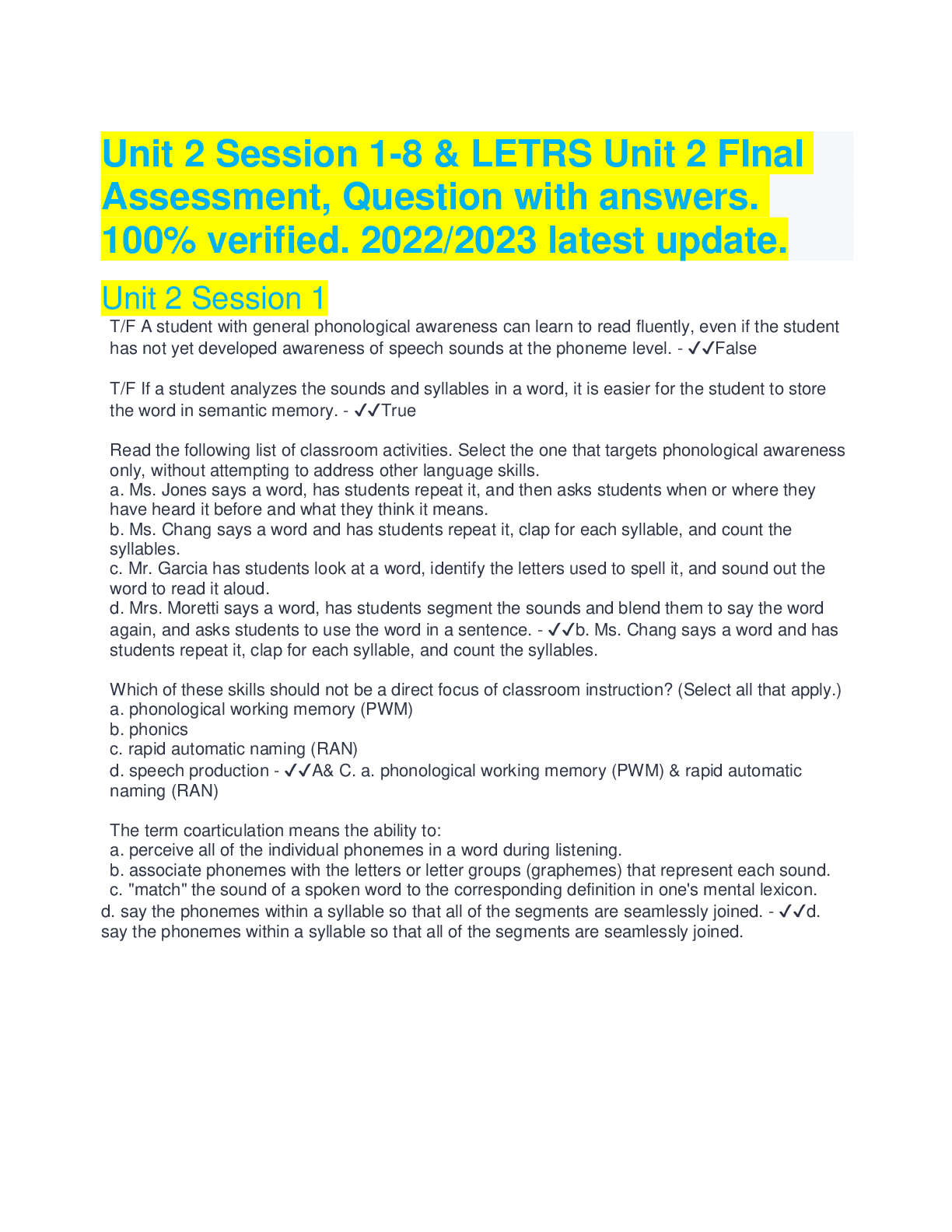
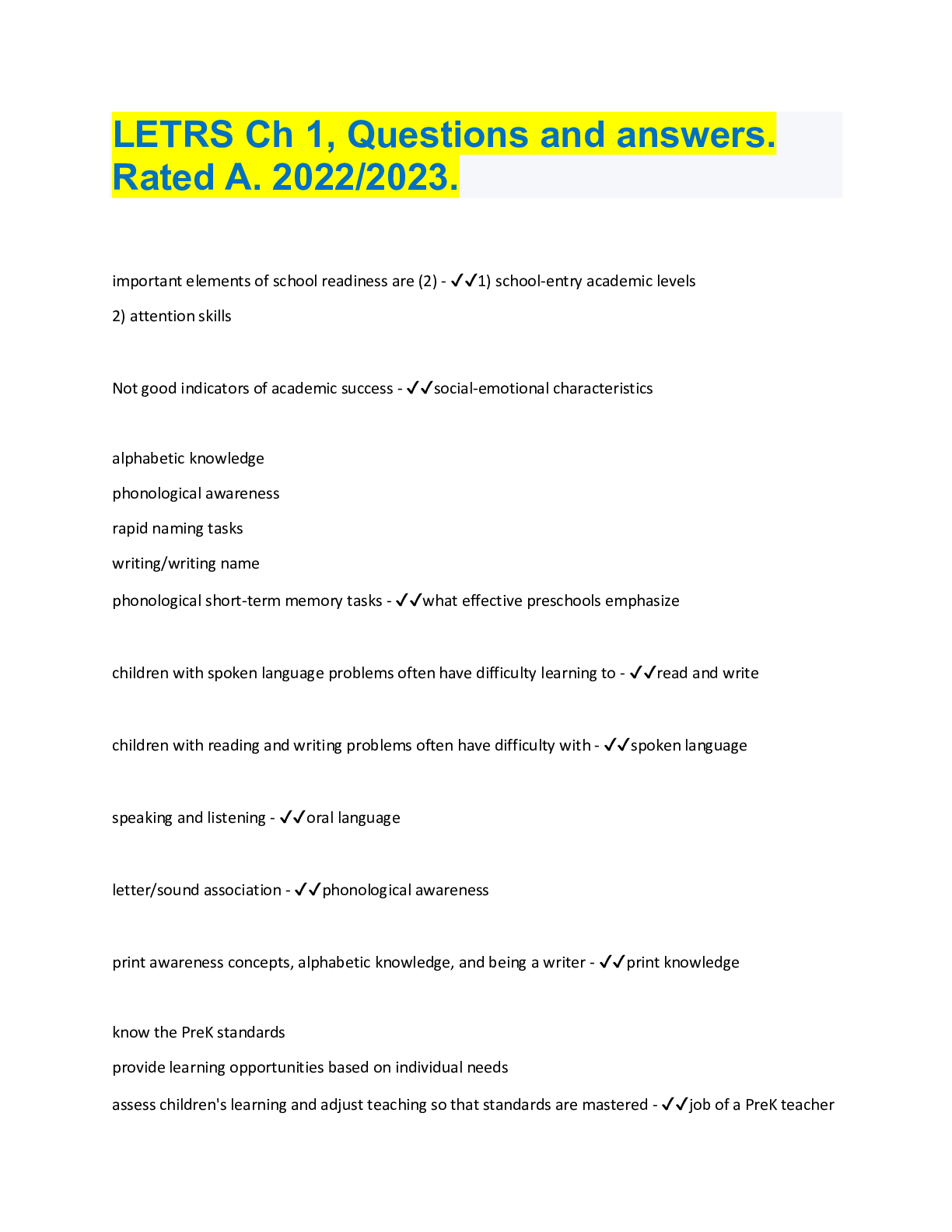
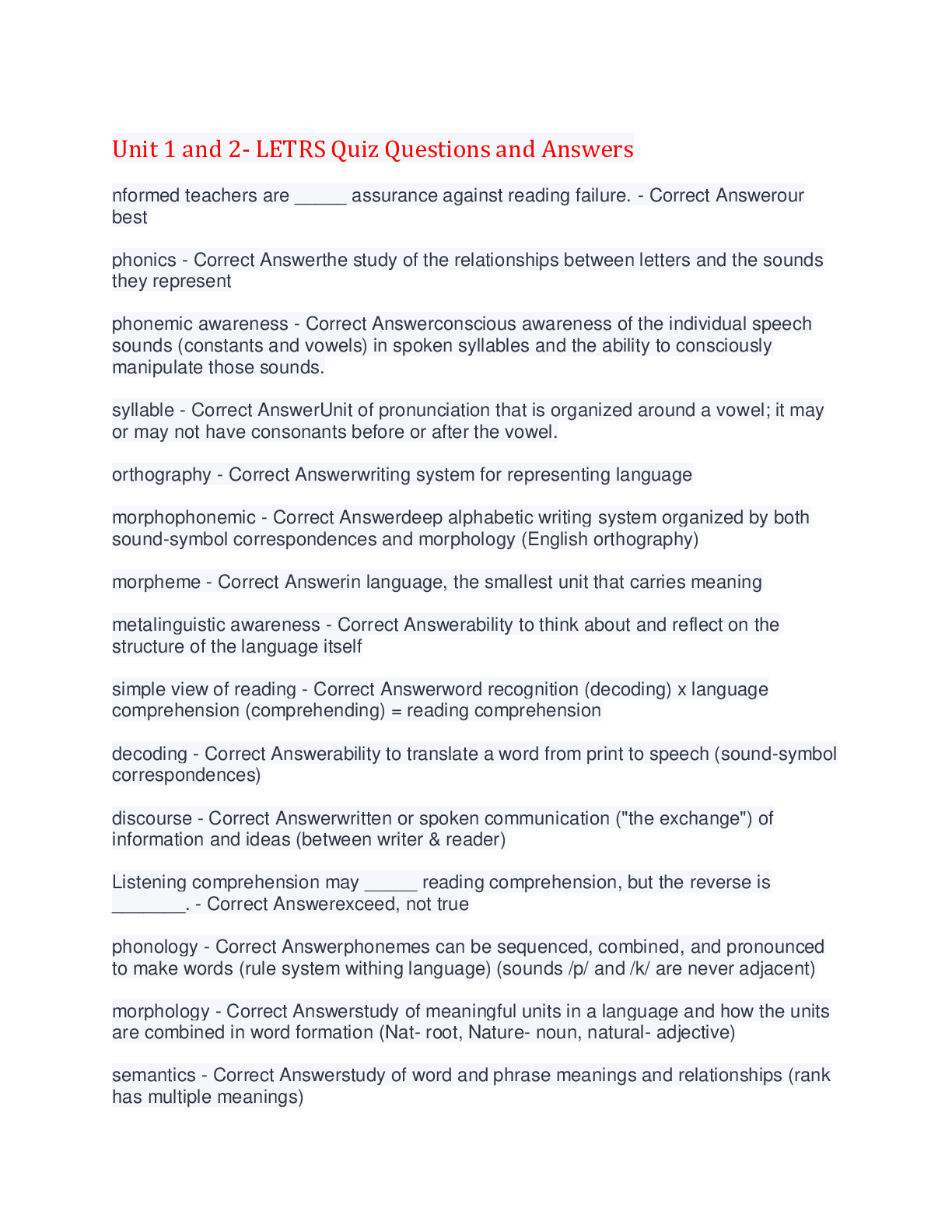
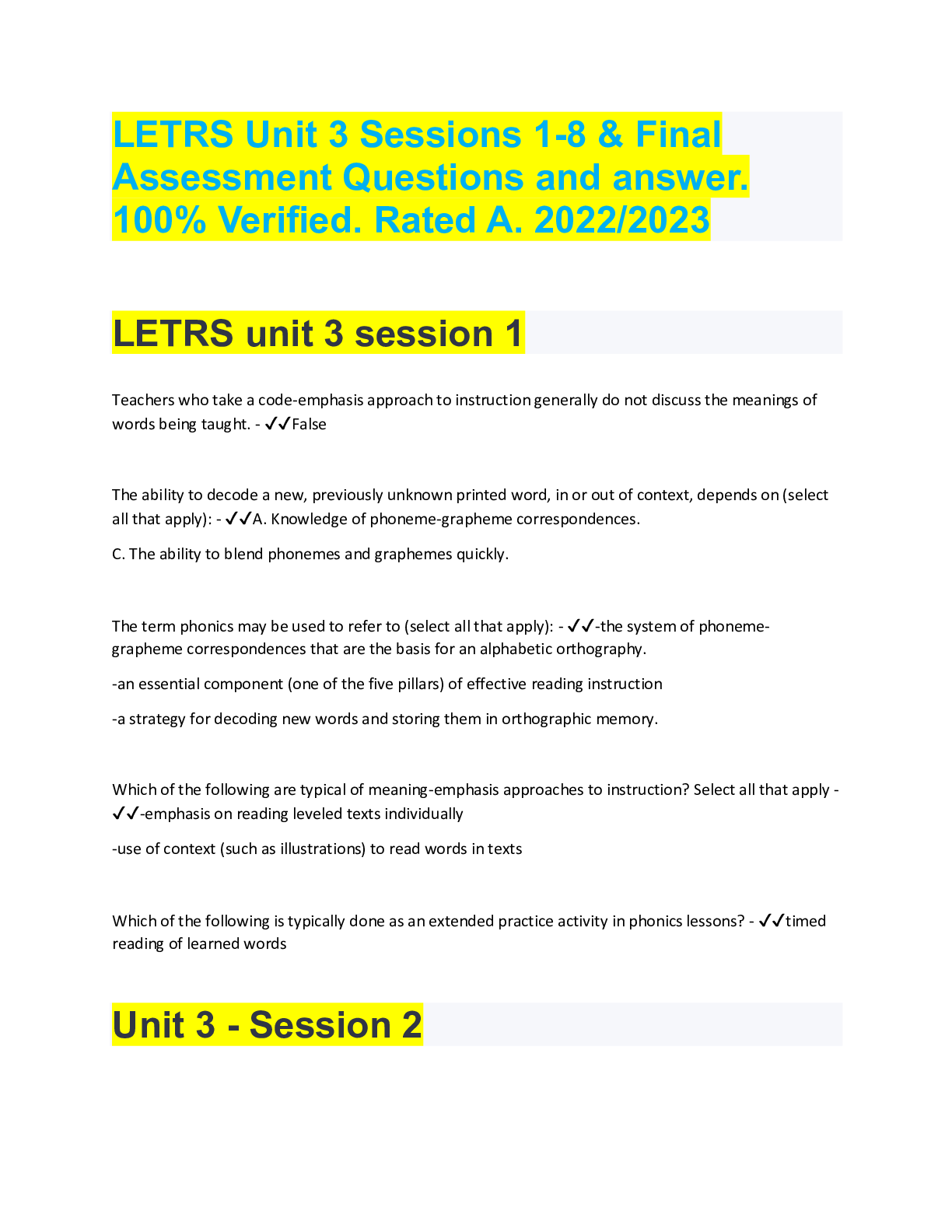

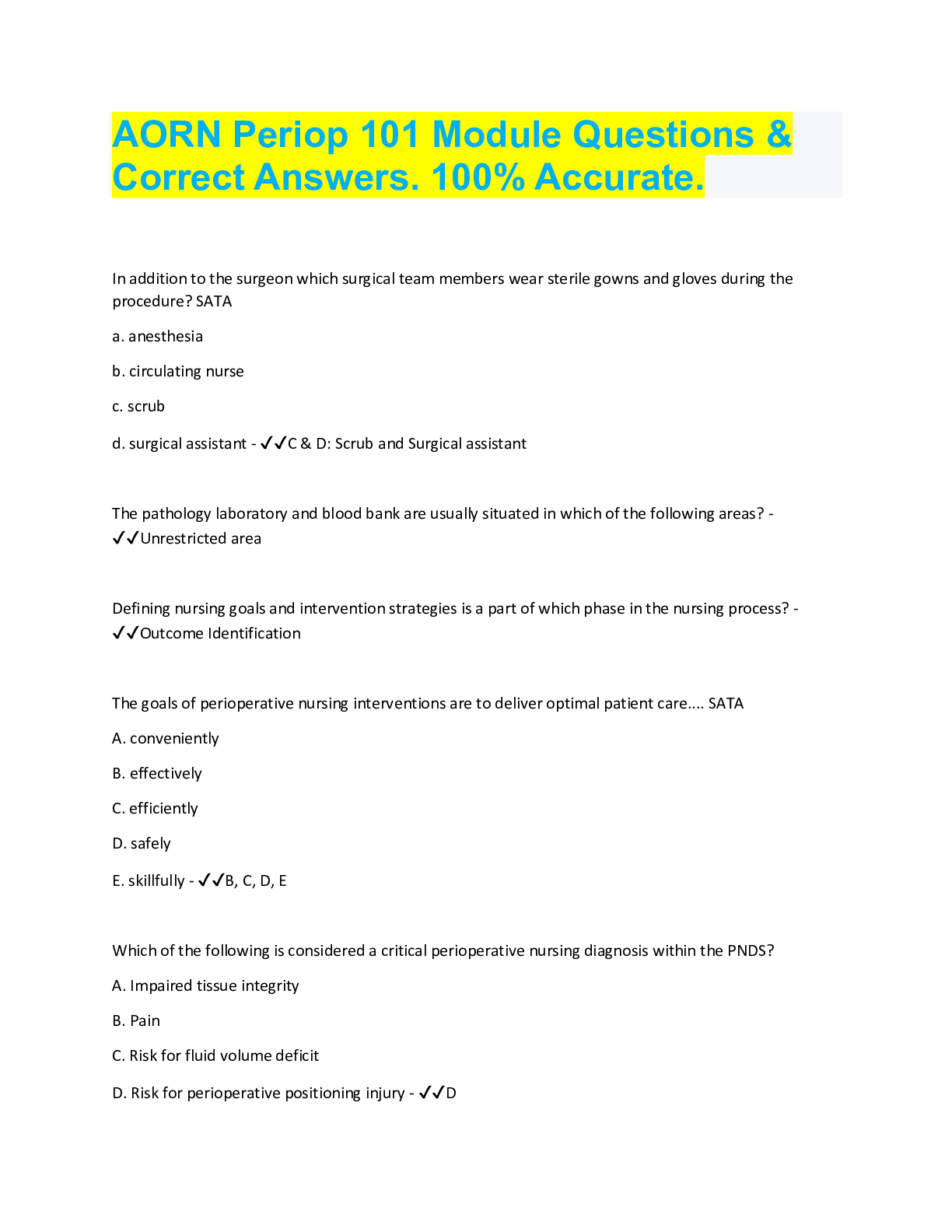
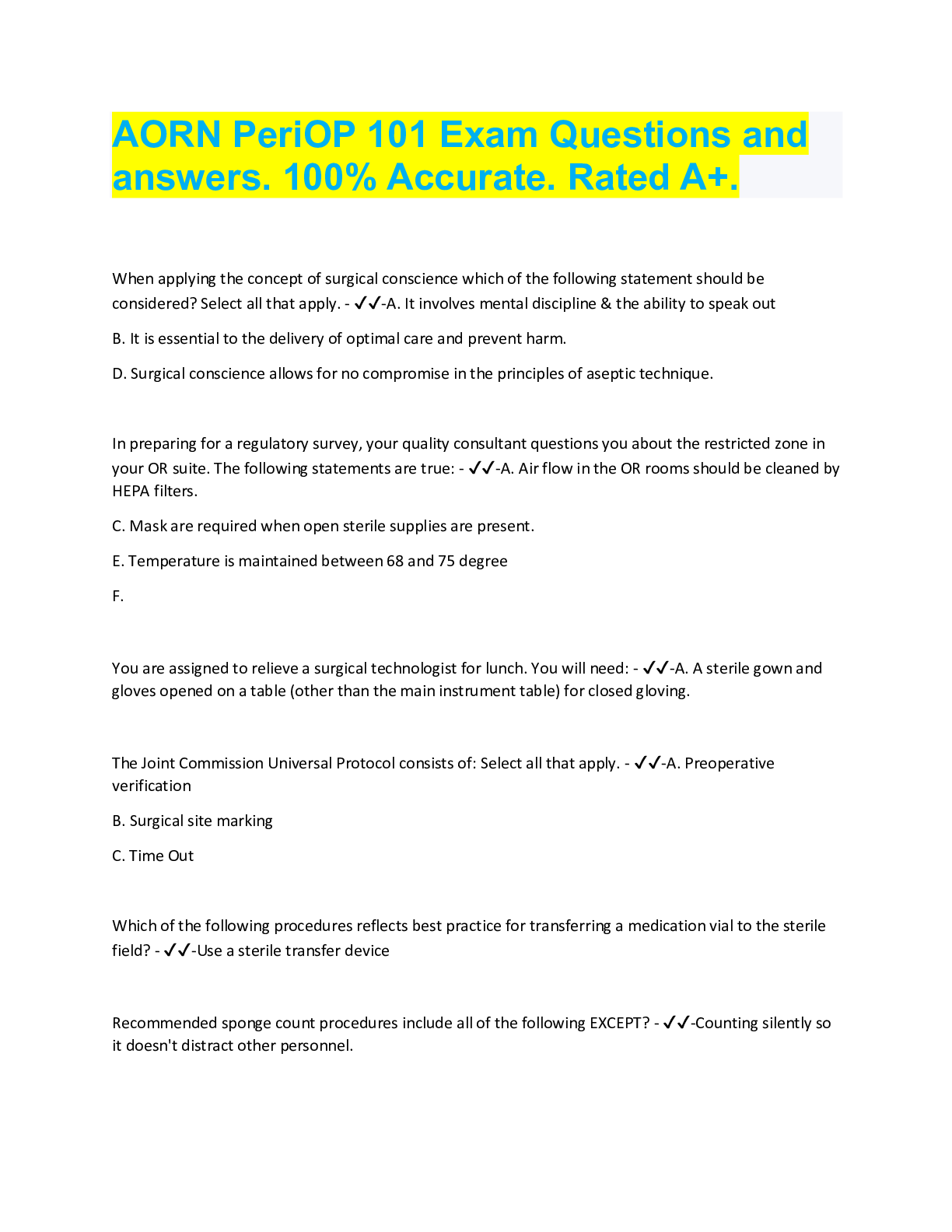
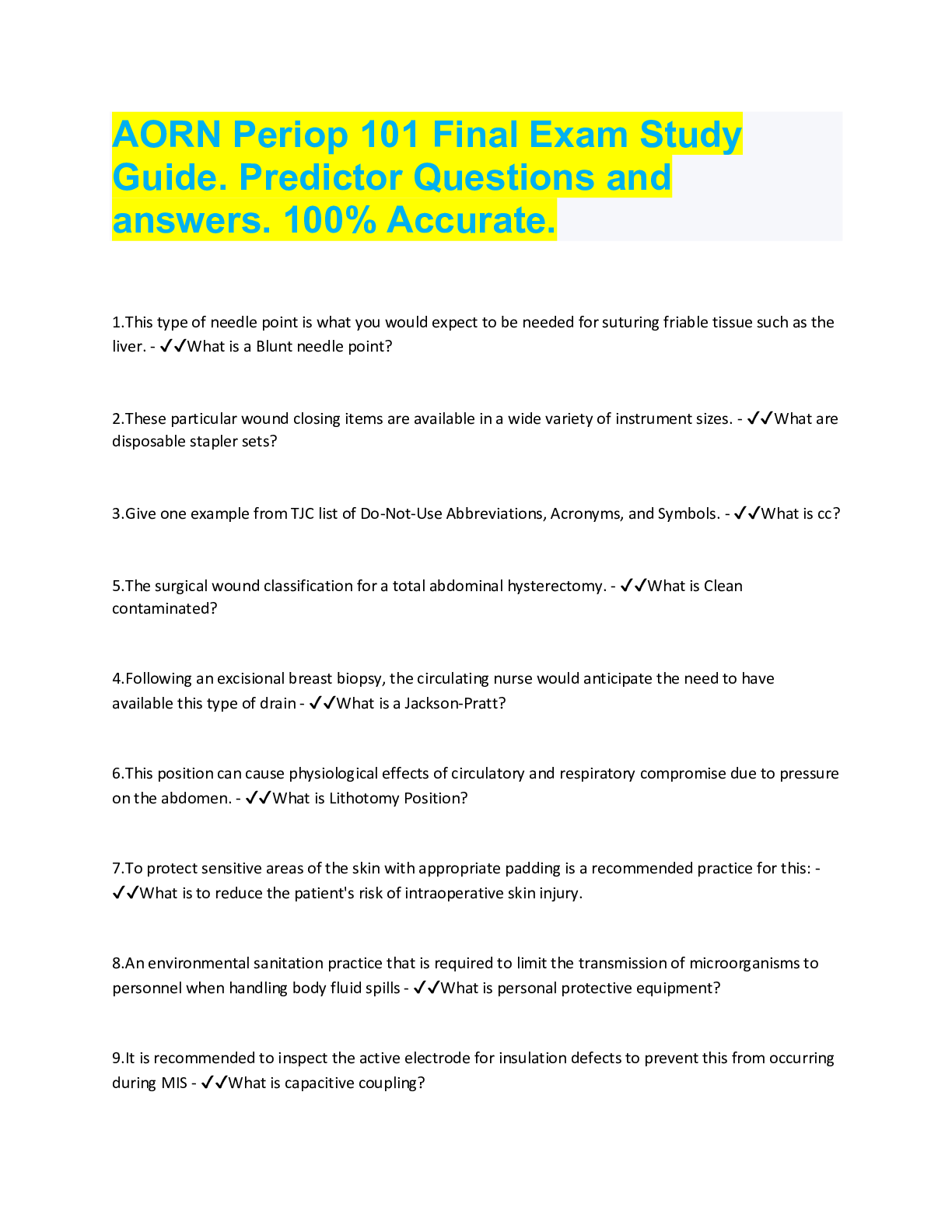
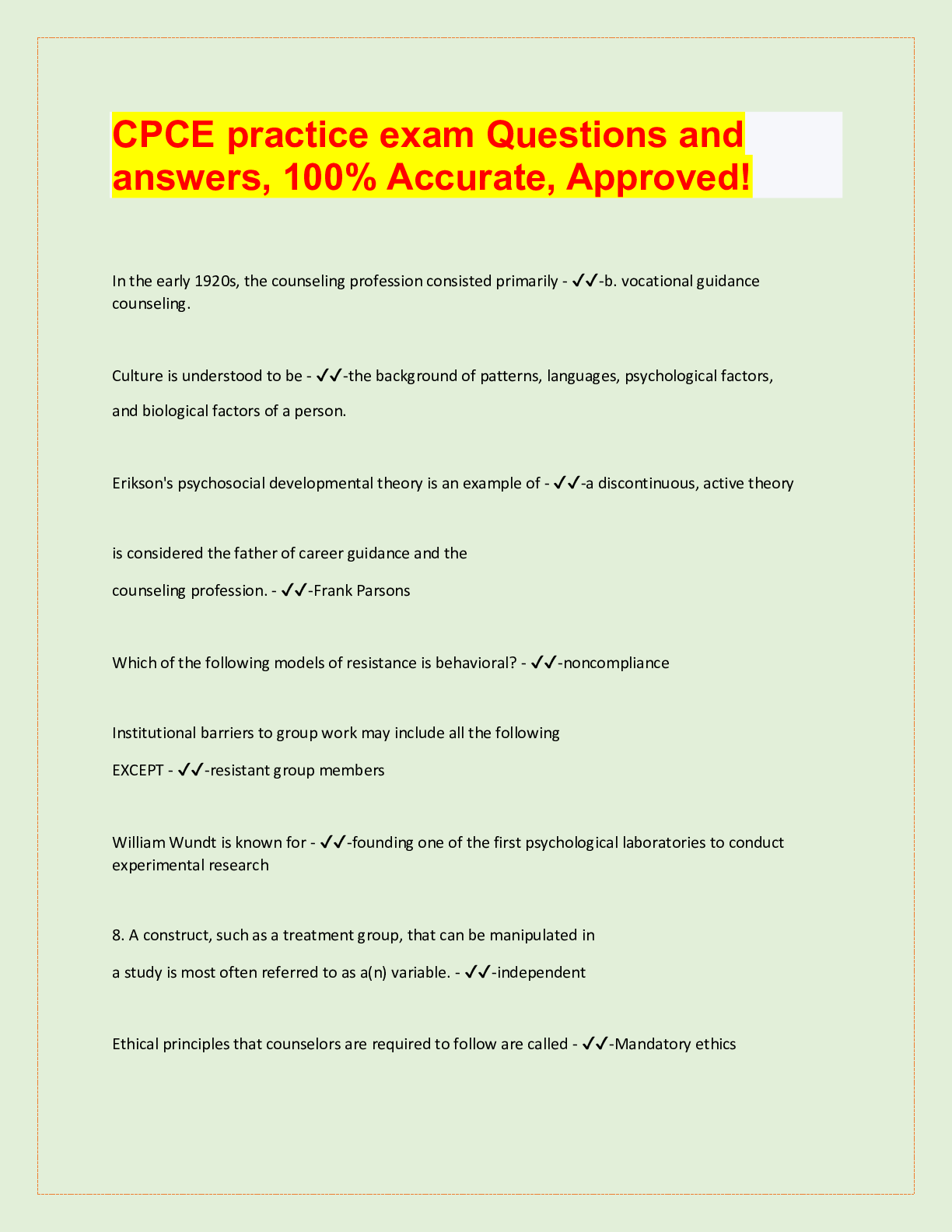


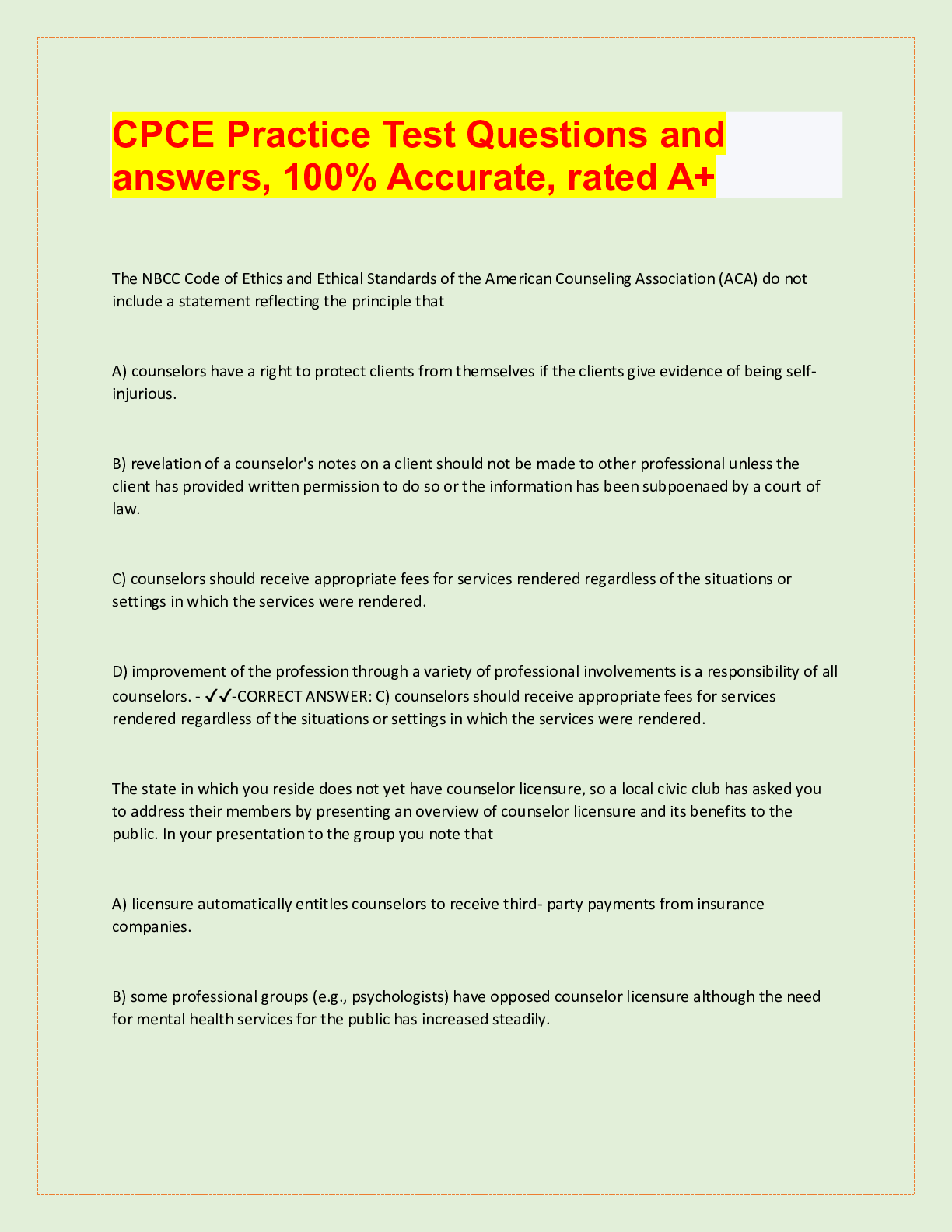
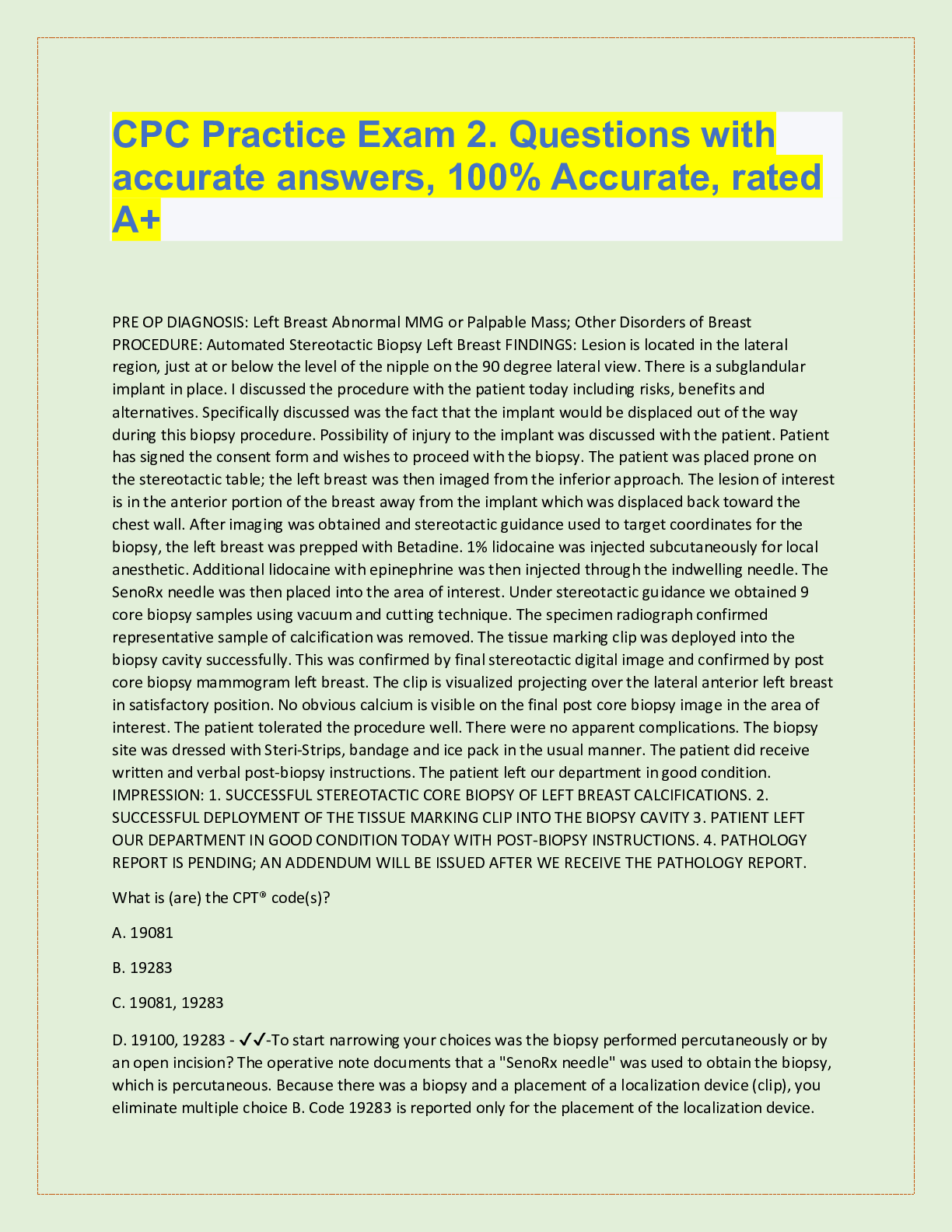
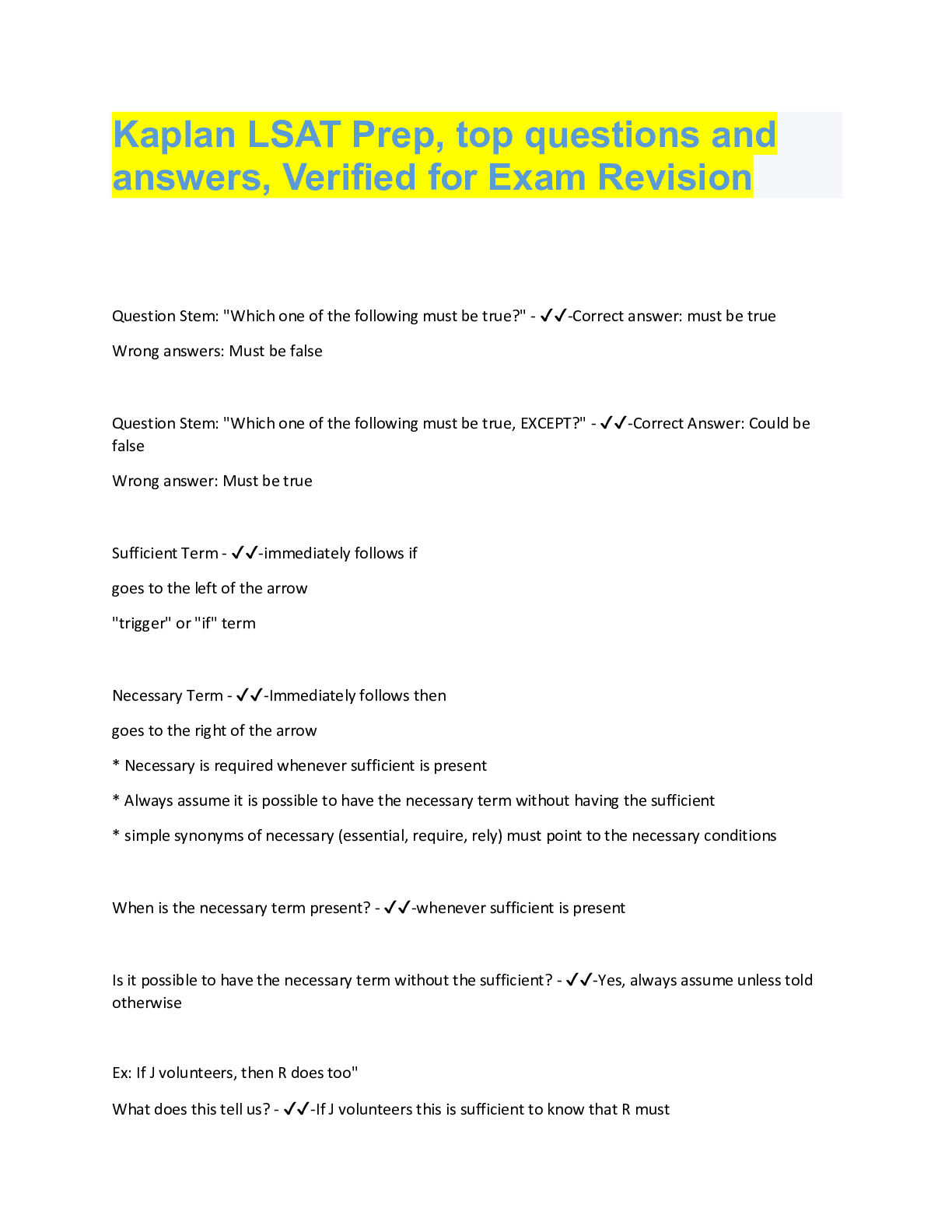
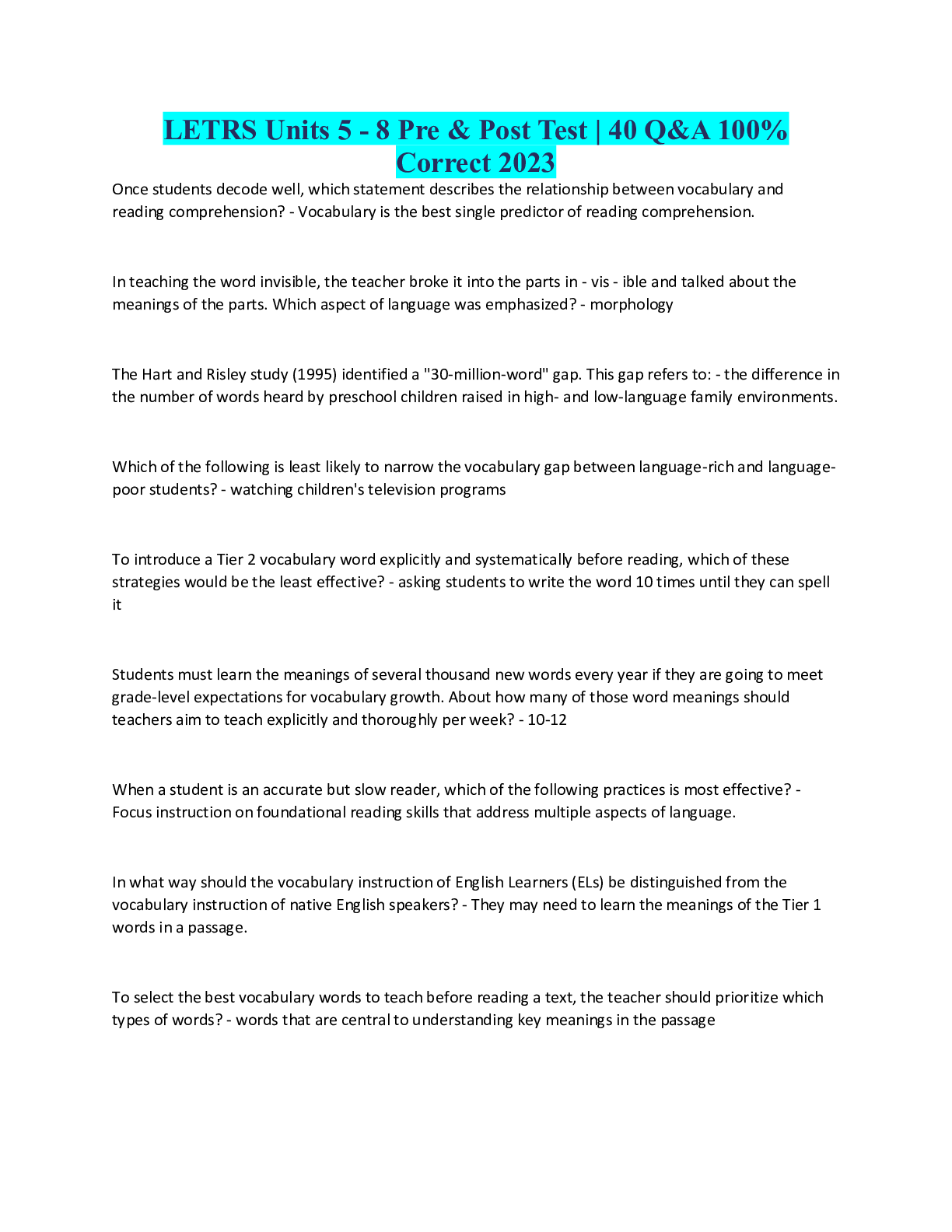
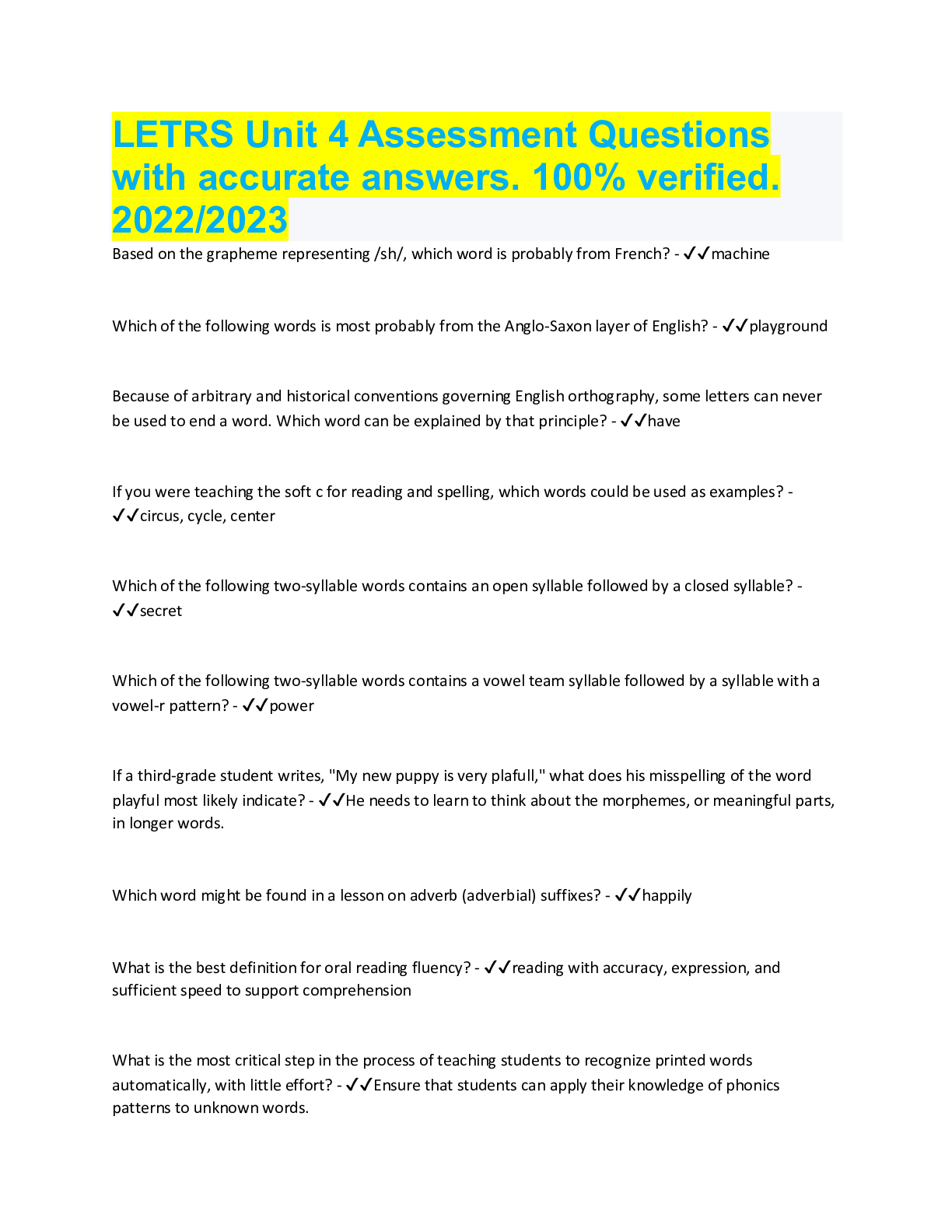
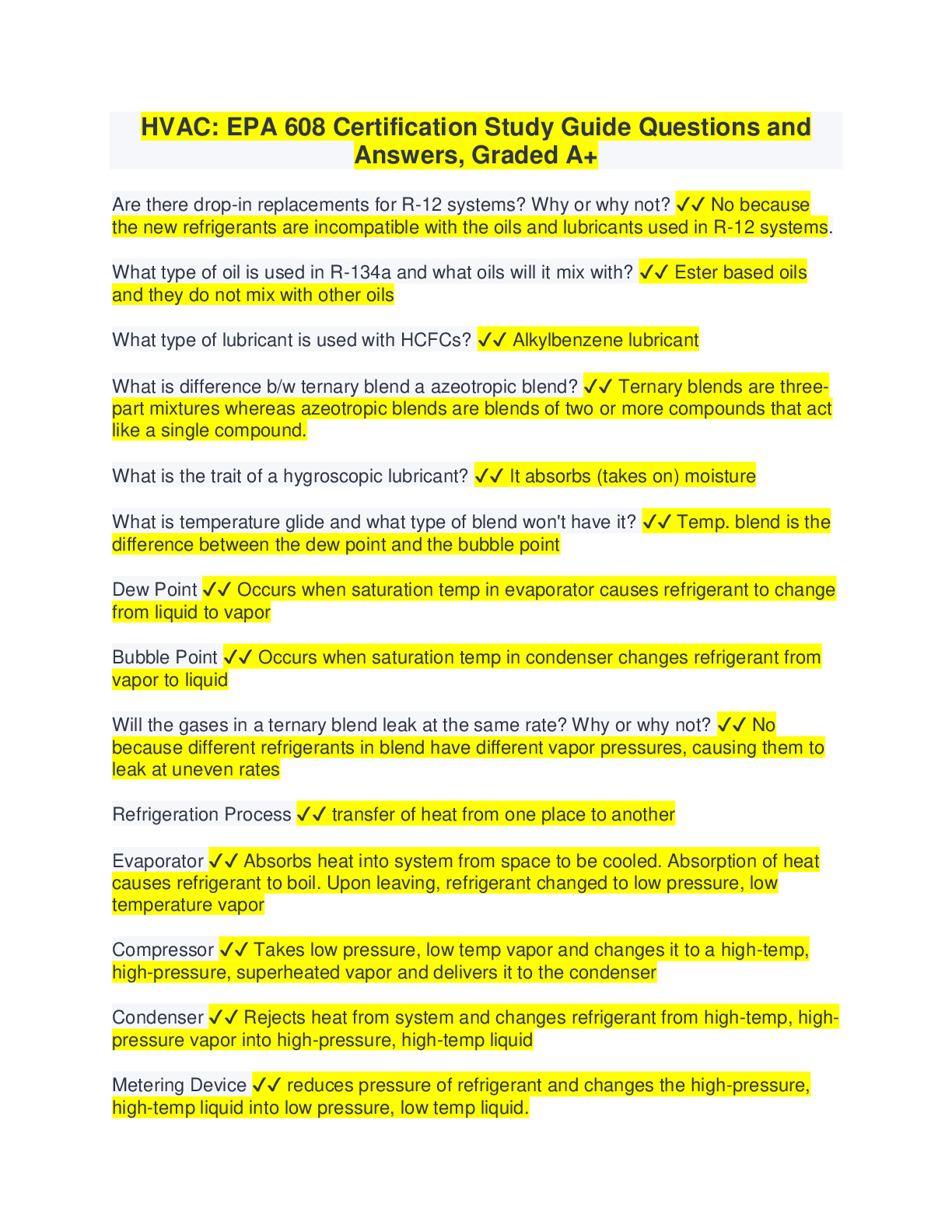
.png)
.png)
